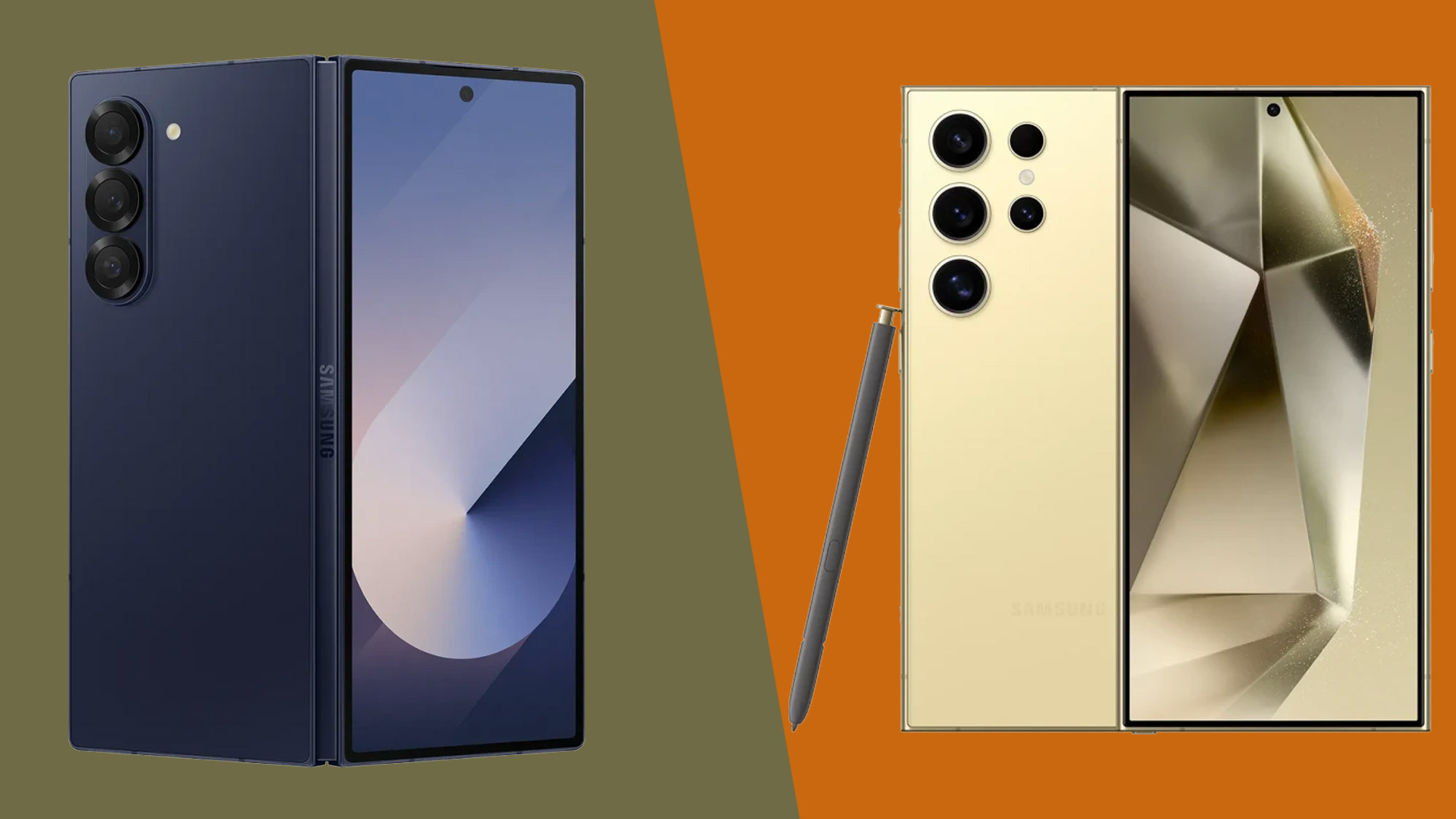
Weight: 239g
Dimensions: 68.1 x 153.5 x 12.1mm
Screen size: 6.3-inch cover, 7.6-inch main
Resolution: 2376 x 968, 2160 x 1856
Chip: Snapdragon 8 Gen 3
RAM: 12GB
Storage: 256GB/512GB/1TB
Battery: 4,400mAh
Rear camera: 50MP+12MP+10MP
Front camera: 10MP
Inner camera: 4MP
Samsung Galaxy Z Fold 6 is Samsung's most comprehensively thought-out foldable to date.
For
- Best foldable yet from Samsung
- Bigger, brighter main screen and wider cover display
- Lots of AI
Against
- Camera array got only a small upgrade
- More expensive
Weight: 232g
Dimensions: 162.3 x 79 x 8.6mm
Screen size: 6.8-inch
Resolution: 1440 x 3120
Chipset: Snapdragon 8 Gen 3
RAM: 12GB
Storage: 256GB/512GB/1TB
Battery: 5,000mAh
Rear camera: 200MP+50MP+12MP+10MP
Front camera: 12MP
The Galaxy S24 Ultra is the best Android phone of 2024, offering a titanium frame and stellar cameras that are a cut above almost anything else on the market right now.
For
- Phenomenal cameras
- Titanium frame
- Supremely powerful
Against
- Big and heavy
- Terrible menus
- Extremely expensive
With the launch of the Galaxy Z Fold 6, Samsung technically has a new flagship phone. So where does that leave the Samsung Galaxy S24 Ultra?
It’s not that simple, of course, with these two premium phones catering to different use case scenarios. One is a foldable phone that seeks to give you a mini-tablet experience in your pocket, while the other is an everything-but-the-kitchen-sink approach to the classic smartphone format.
Even so, the fact remains that these are two premium Samsung phones with a lot of shared elements. For all their differences, both subtle and pronounced, they’ll still be competing with one another for your hard-earned money.
Here, then, is how the Samsung Galaxy Z Fold 6 vs Galaxy S24 Ultra stack up to one another on paper.
Samsung Galaxy Z Fold 6 vs Samsung Galaxy S24 Ultra: specs comparison
Samsung Galaxy Z Fold 6 vs Samsung Galaxy S24 Ultra: price and availability
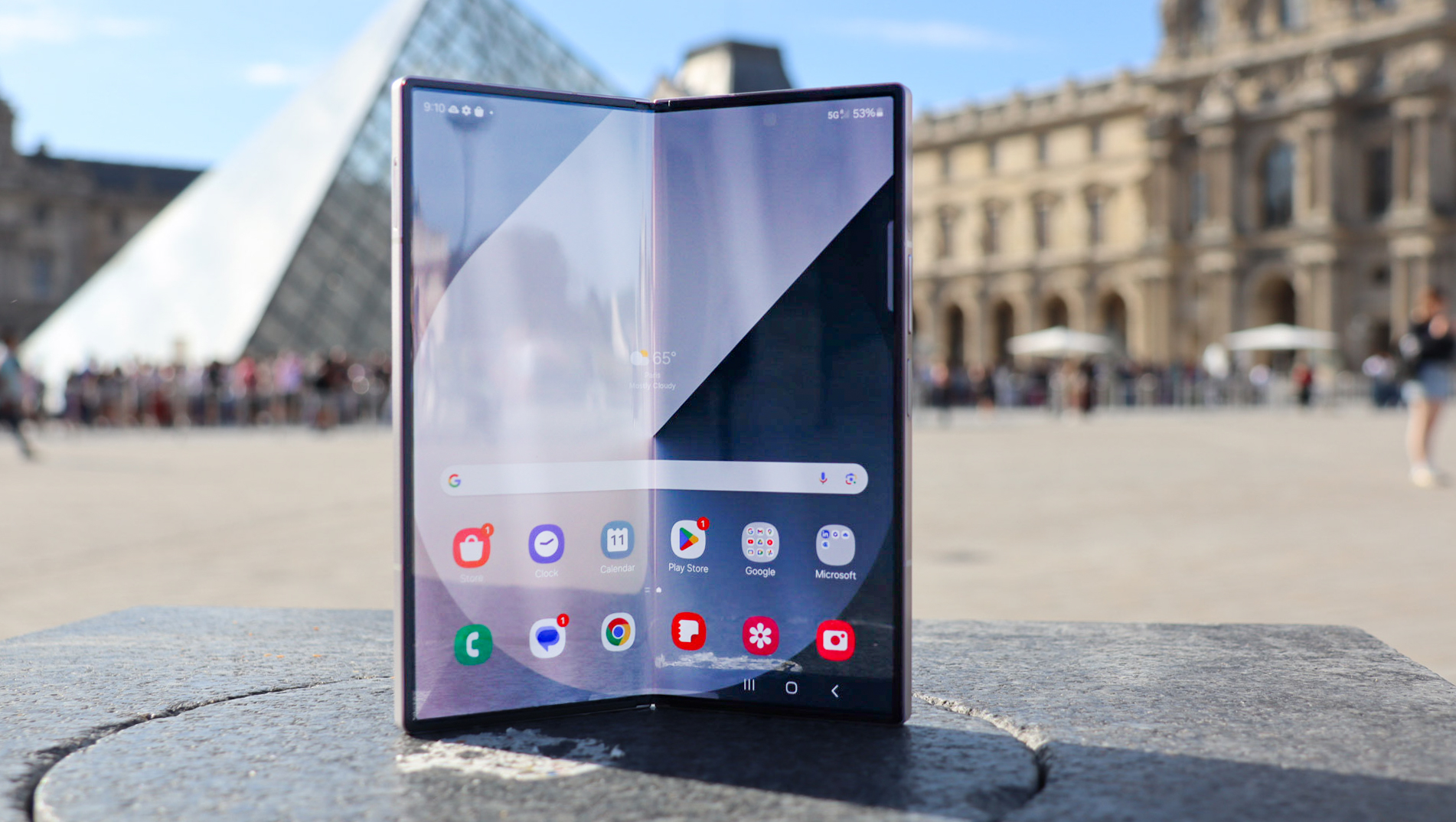
The Galaxy Z Fold 6 went on sale July 24 in the US and UK, and on July 31 in Australia. The Galaxy S24 Ultra went on sale six months earlier than that, on January 31.
Prices for the Galaxy Z Fold 6 start from $1,899 / £1,799 / AU$2,749 for the 256GB model, moving up to $2,019 / £1,899 / AU$2,949 for 512GB and $2,259 / £2,099 / AU$3,299 for 1TB. This is a $100 / £50 / AU$150 price increase over the Fold 5.
Pricing for the Galaxy S24 Ultra starts from $1,299 / £1,249 / AU$2,199 for 256GB of storage, while the 512GB model costs $1,399.99 / £1,399 / AU$2,549 for 512GB and the range-topping 1TB model costs $1,659.99 / £1,549 / AU$2,799.
These are two of the most expensive phones on the market, but the Galaxy Z Fold 6 almost makes the Galaxy S24 Ultra seem cheap with its $600 / £550 / AU$550 premium. That’s about the cost of a high-quality mid-range phone like the Google Pixel 8a.
Samsung Galaxy Z Fold 6 vs Samsung Galaxy S24 Ultra: design
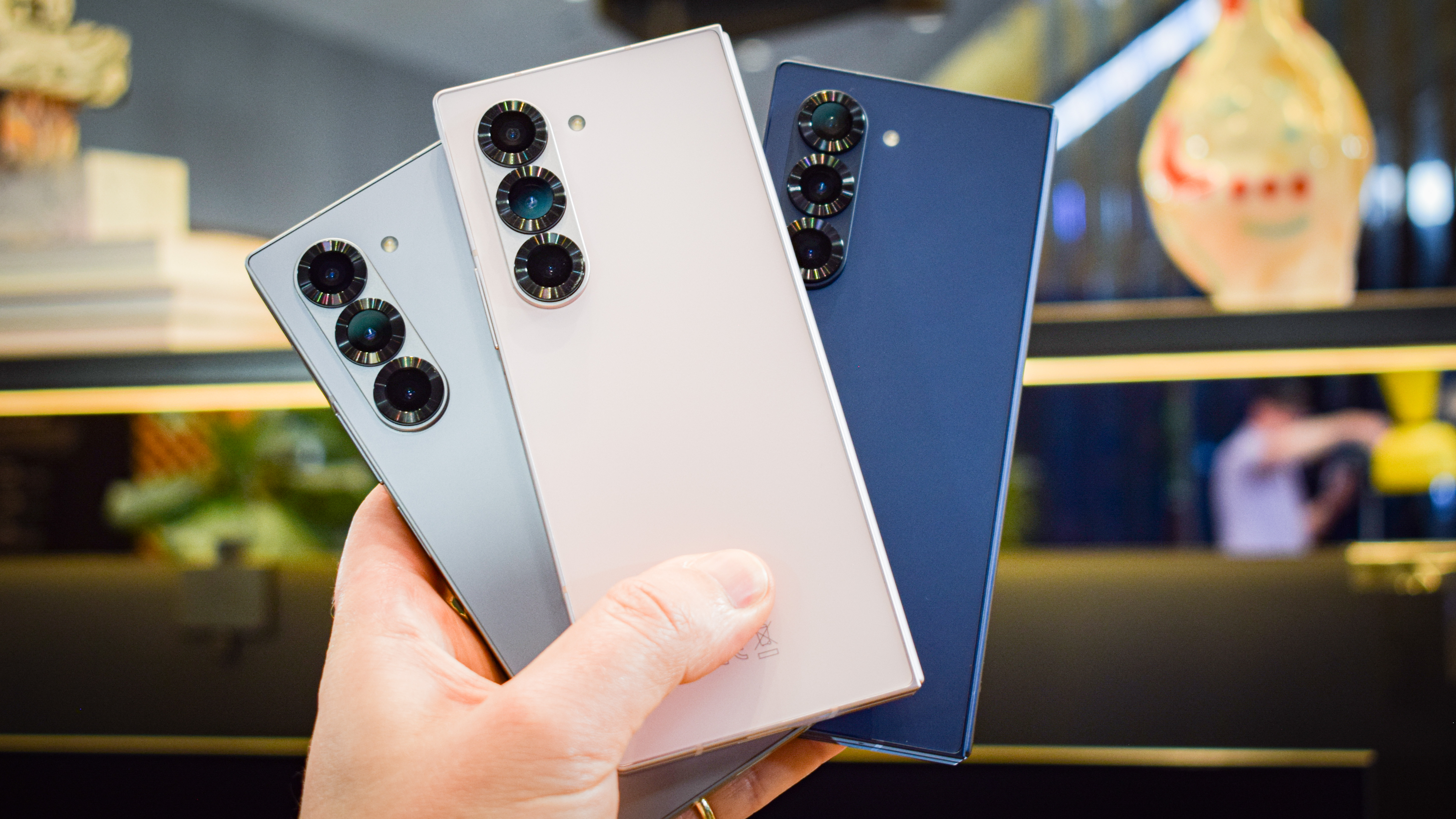
As we made reference to in the intro, these two phones have fundamentally different designs. The Galaxy Z Fold 6 is a big phone that transforms into a mini-tablet, while the Galaxy S24 Ultra is a traditional flagship phone with the bonus of an integrated S Pen stylus.
They’re both heavy as phones go, though Samsung has worked hard to bring the weight of its foldable down. Thanks to that, the 239g Fold 6 is only 7g heavier than the Galaxy S24 Ultra.
Samsung’s new foldable is much skinnier when open, at 5.6mm compared to the Galaxy S24 Ultra’s 8.6mm. That’s not how you’ll be using the Fold most of the time though, and it measures a considerable 12.1mm thick when folded up.
It’s not just the Fold 6’s weight that has taken a step towards the Galaxy S24 Ultra. Samsung has given its new foldable a much sharper, more angular look that can’t help but call to mind the S24 Ultra.
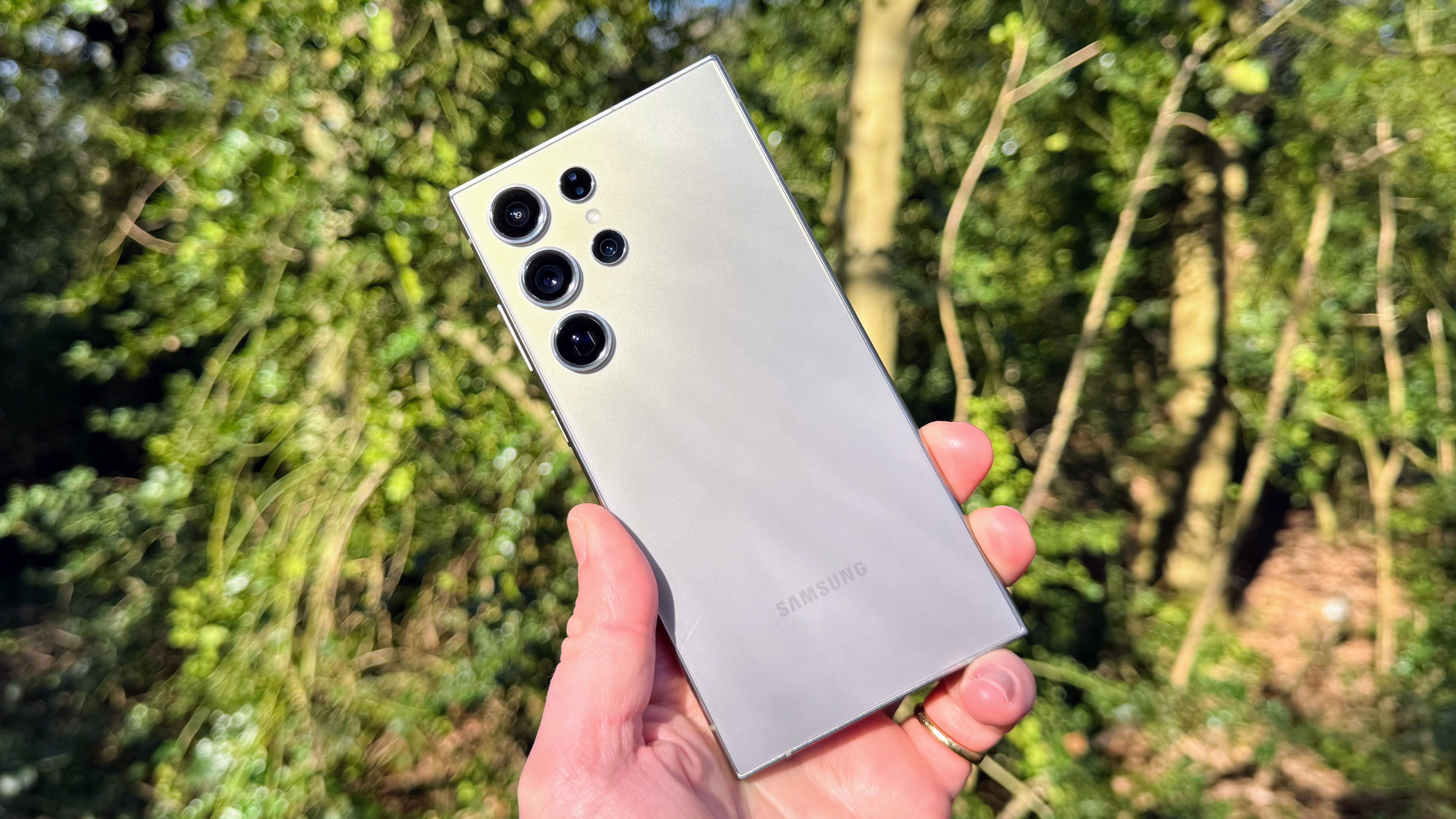
The Galaxy S24 Ultra’s bill of materials remains more impressive, though. Corning Gorilla Armor to the front and back is tougher than the Fold 6’s Gorilla Glass Victus 2, while a titanium frame also beats the Fold 6’s aluminum.
Samsung’s flagship phone also has superior IP68 certification, meaning it’s more dust resistant than the IP48-rather Galaxy Z Fold 6.
Of course, the Galaxy Z Fold 6 contains the more elaborate engineering, with a new reinforced hinge system that makes the whole foldable concept possible. That’s not to say that the Galaxy S24 Ultra isn’t without its own tricks, most notably in finding space to stash a compact S Pen stylus, which pops out of the bottom edge with a satisfying button press.
Samsung Galaxy Z Fold 6 vs Samsung Galaxy S24 Ultra: display
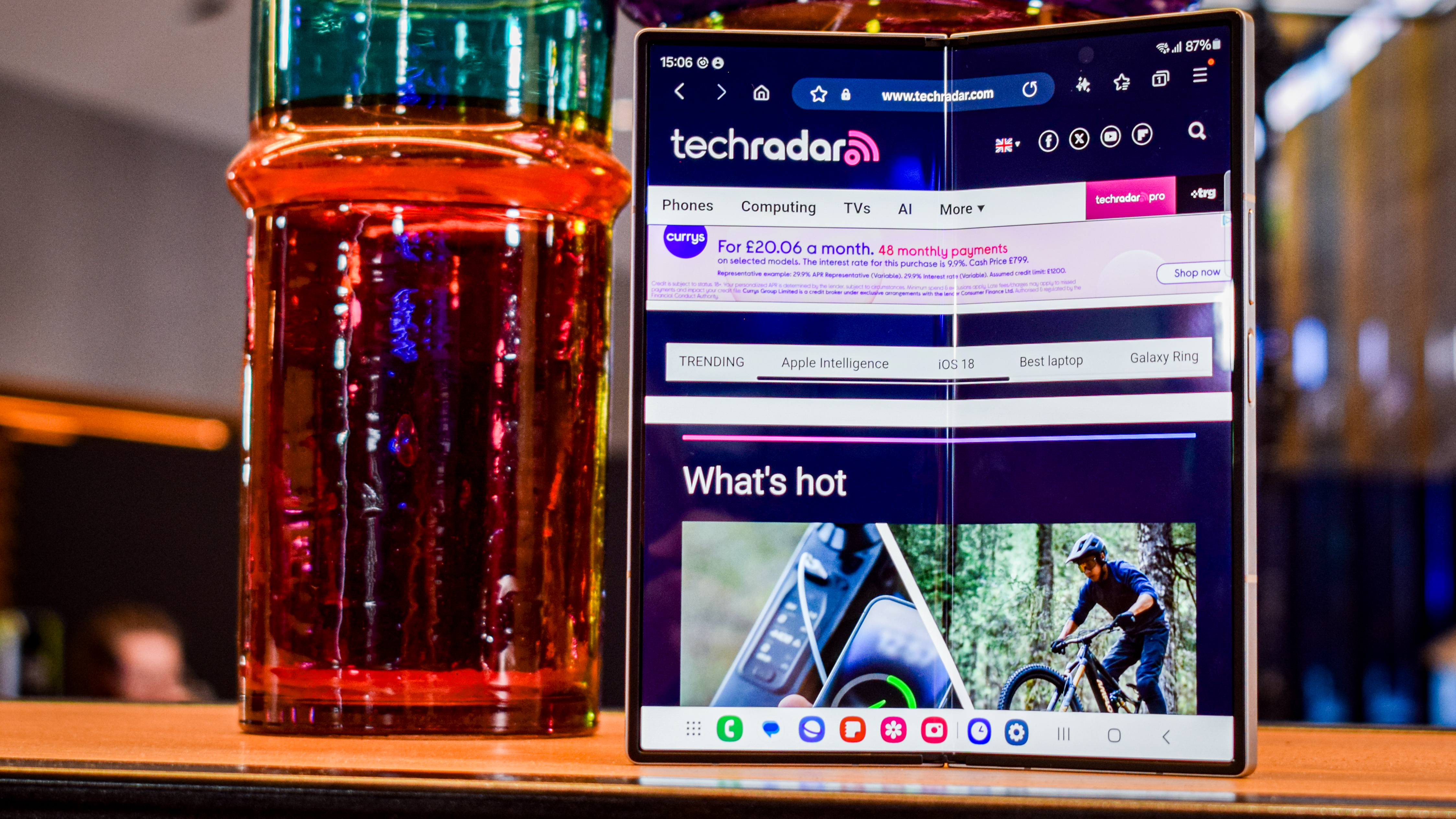
On a very straight-forward level, the Galaxy Z Fold 6 has way more screen going on than the Galaxy S24 Ultra. That’s true both numerically and in terms of pure real estate.
The Galaxy Z Fold 6 has two AMOLED screens to the Galaxy S24 Ultra’s one, and its main fold-out screen stretches to 7.6 inches. That dwarfs the S24 Ultra’s single 6.9-inch unit.
It might be bigger, but the Fold 6’s main screen has a much squarer aspect ratio and isn’t as sharp, with a 1856 x 2160 resolution (for 374 ppi) falling well short of the S24 Ultra’s 1440 x 3120 (for 505 ppi). Both screens are 120Hz, though, and can achieve the same 2,600 nits of brightness in peak HDR scenarios.
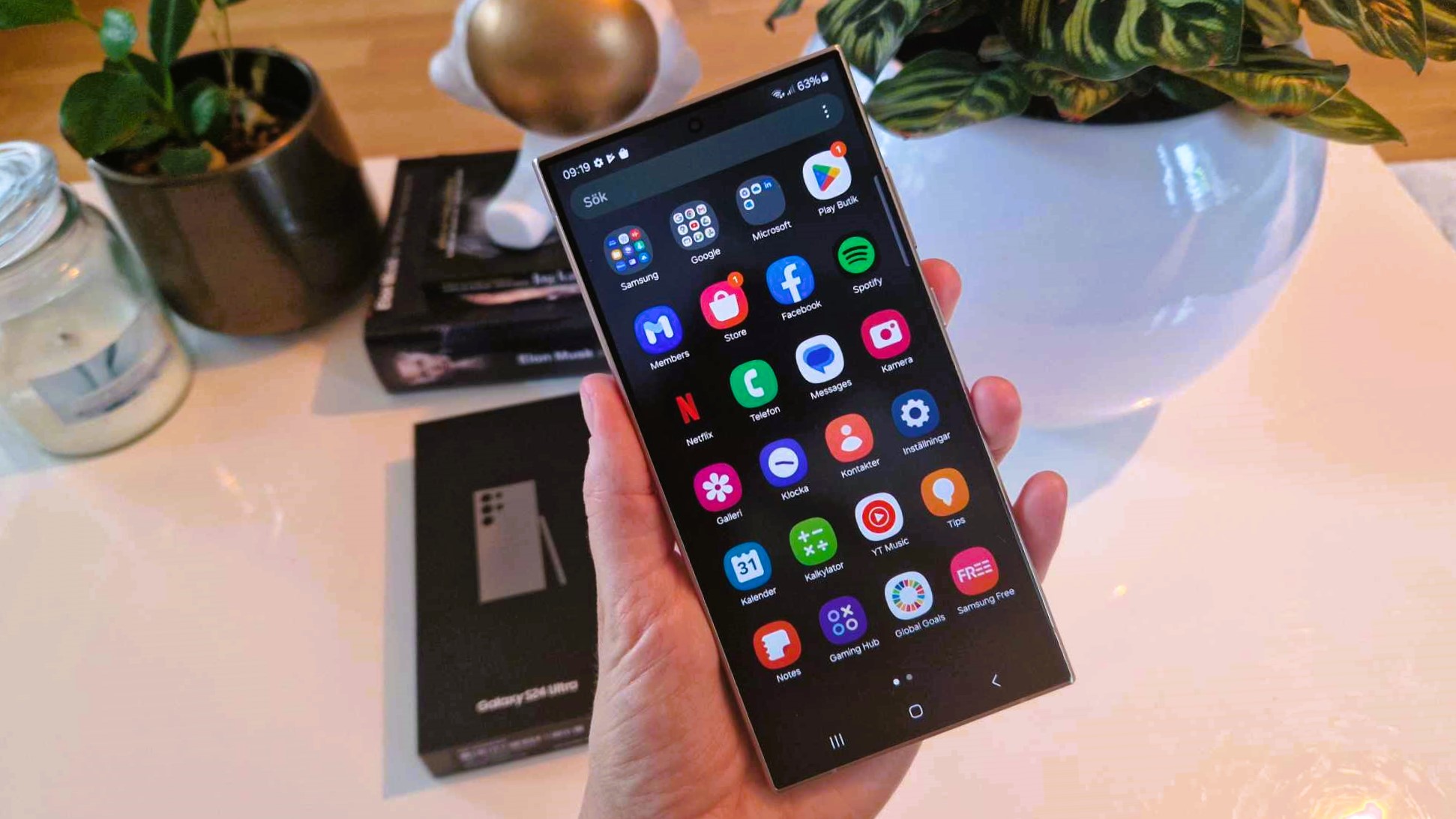
It’s worth pointing out that both of these main screens feature a form of S Pen stylus compatibility, while the Galaxy S24 Ultra comes with one in the box (and indeed the body), you’ll need to buy a special foldable model of the S Pen separately for the Fold 6.
The Fold 6 has another trick up its sleeve in the shape of a secondary display. This one’s like a smaller version of the Ultra’s, with a 6.3-inch size and a 968 x 2376 resolution (for 410 ppi). It gets just as bright, and also packs a 120Hz refresh rate.
In summary, then, the Galaxy S24 Ultra doesn’t have as many screens as the Fold 6, but its single screen is arguably the best of the bunch.
Samsung Galaxy Z Fold 6 vs Samsung Galaxy S24 Ultra: cameras

So far it’s been a little like comparing apples and oranges, but there’s one part of this package that represents a clear win for the Galaxy S24 Ultra. Its camera system is simply way more advanced.
We know that already because the Galaxy Z Fold 6 broadly sticks with the same triple camera system as the Fold 5, which was much the same as the Fold 4 before it. So, you’re getting a familiar 50MP f/1.8 main camera, a 12MP f/2.2 ultra-wide, and a 10MP f/2.4 3x telephoto camera with the potential for 30x hybrid zoom shots.
That ultra-wide is said to be a new component that’s better in low-light conditions than before, but otherwise we’re looking at the same decent-but-ageing set-up, albeit with superior image processing to its predecessor.
Samsung Galaxy Z Fold 6 camera samples:

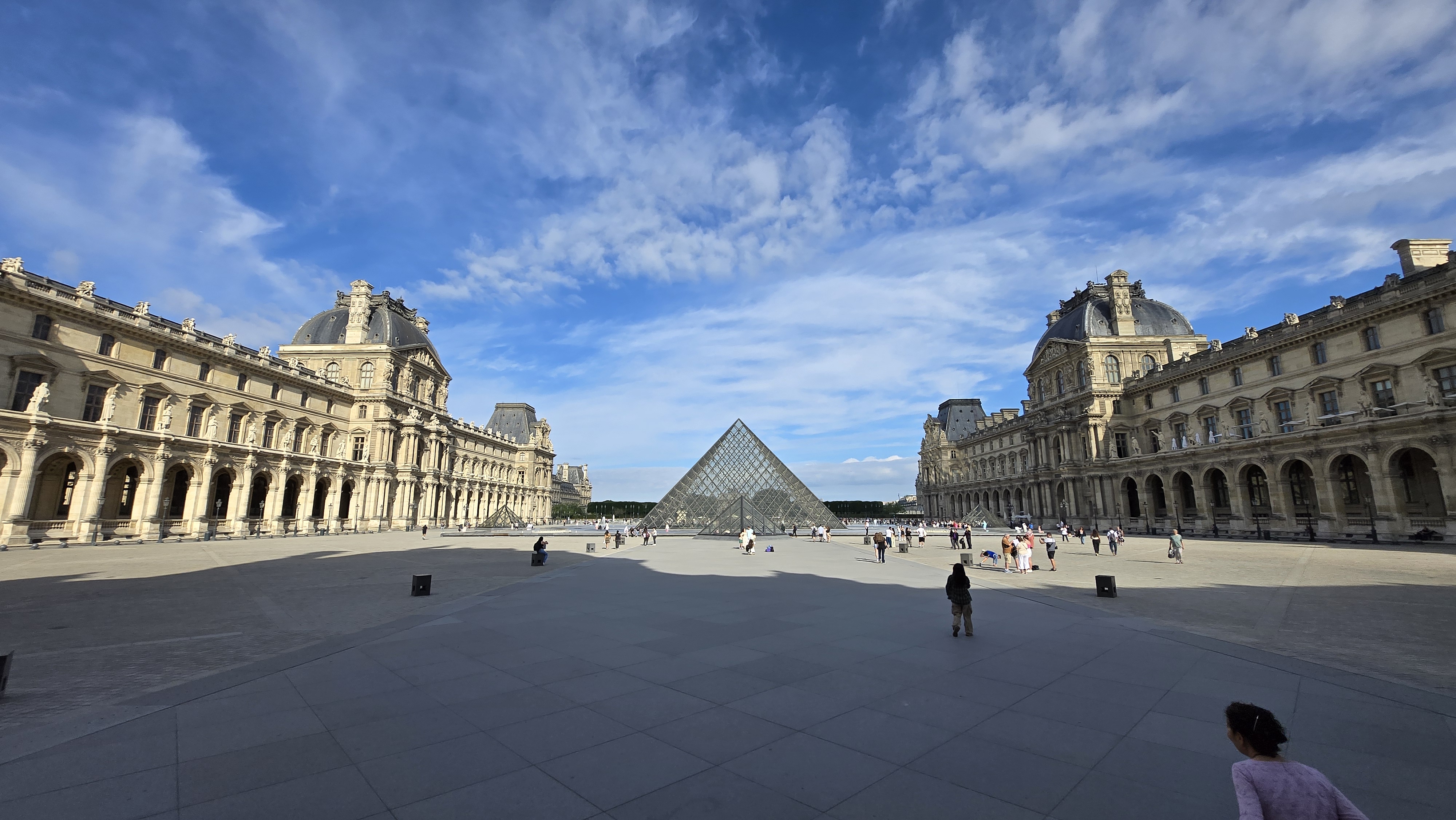




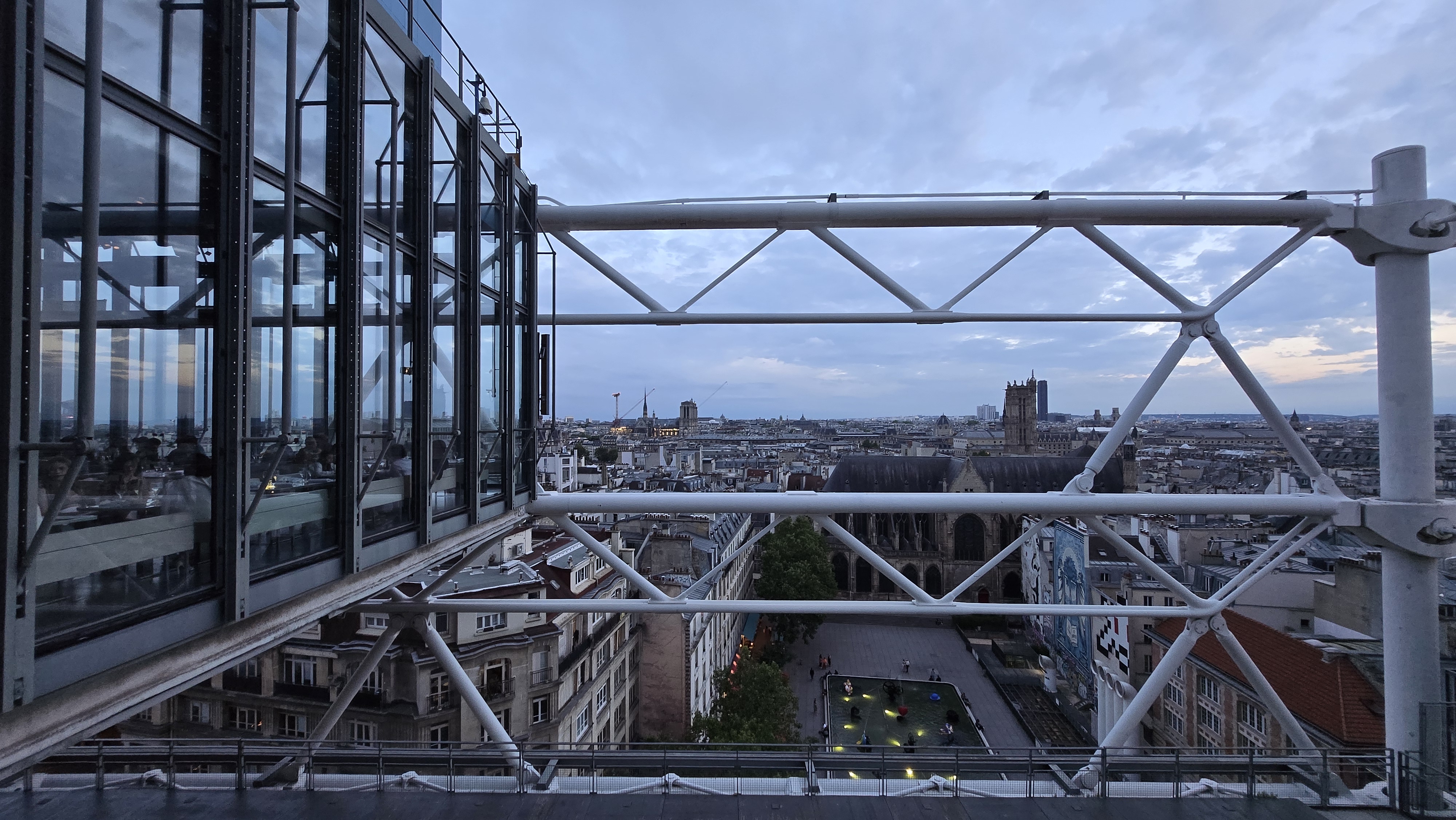


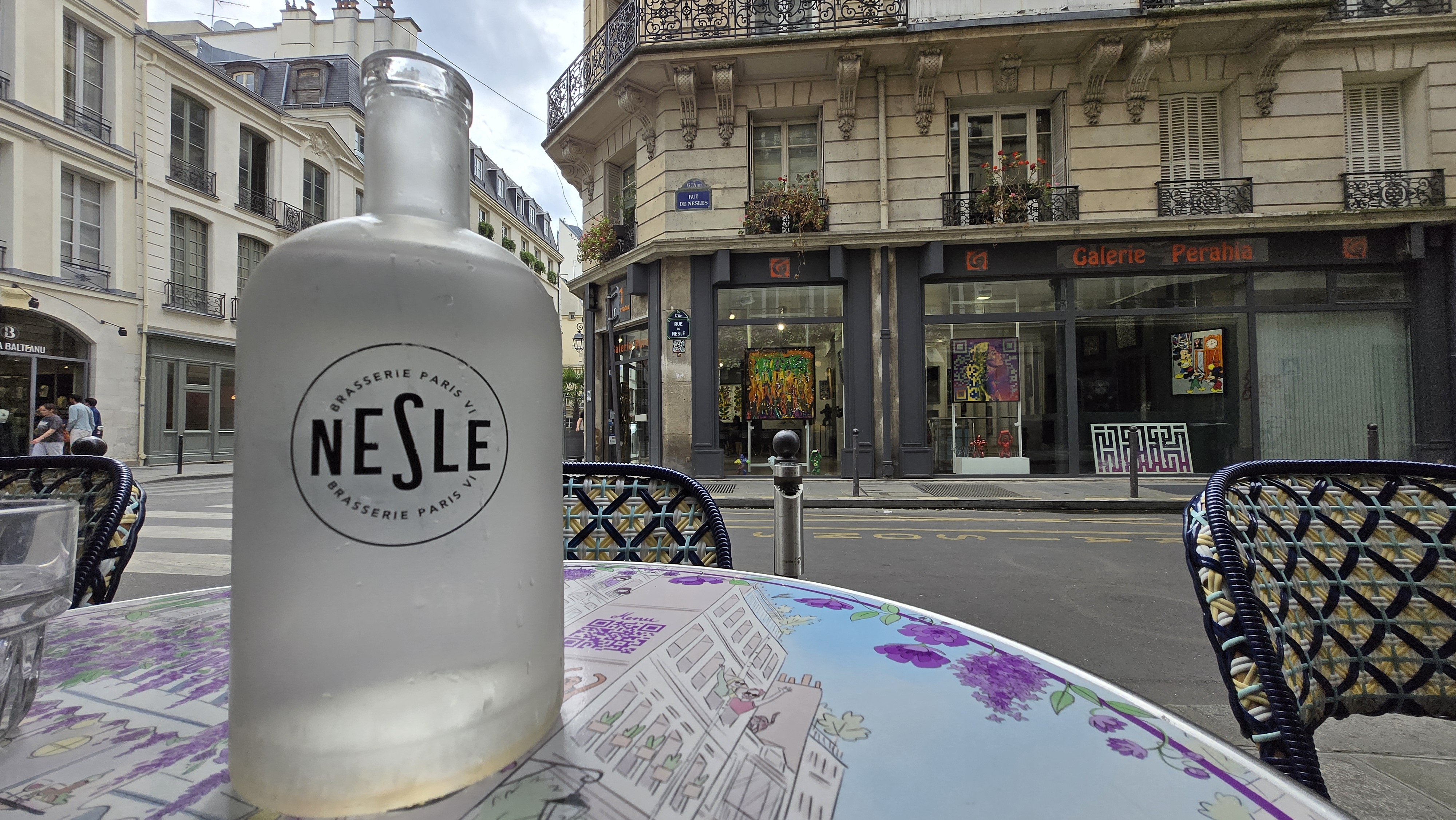
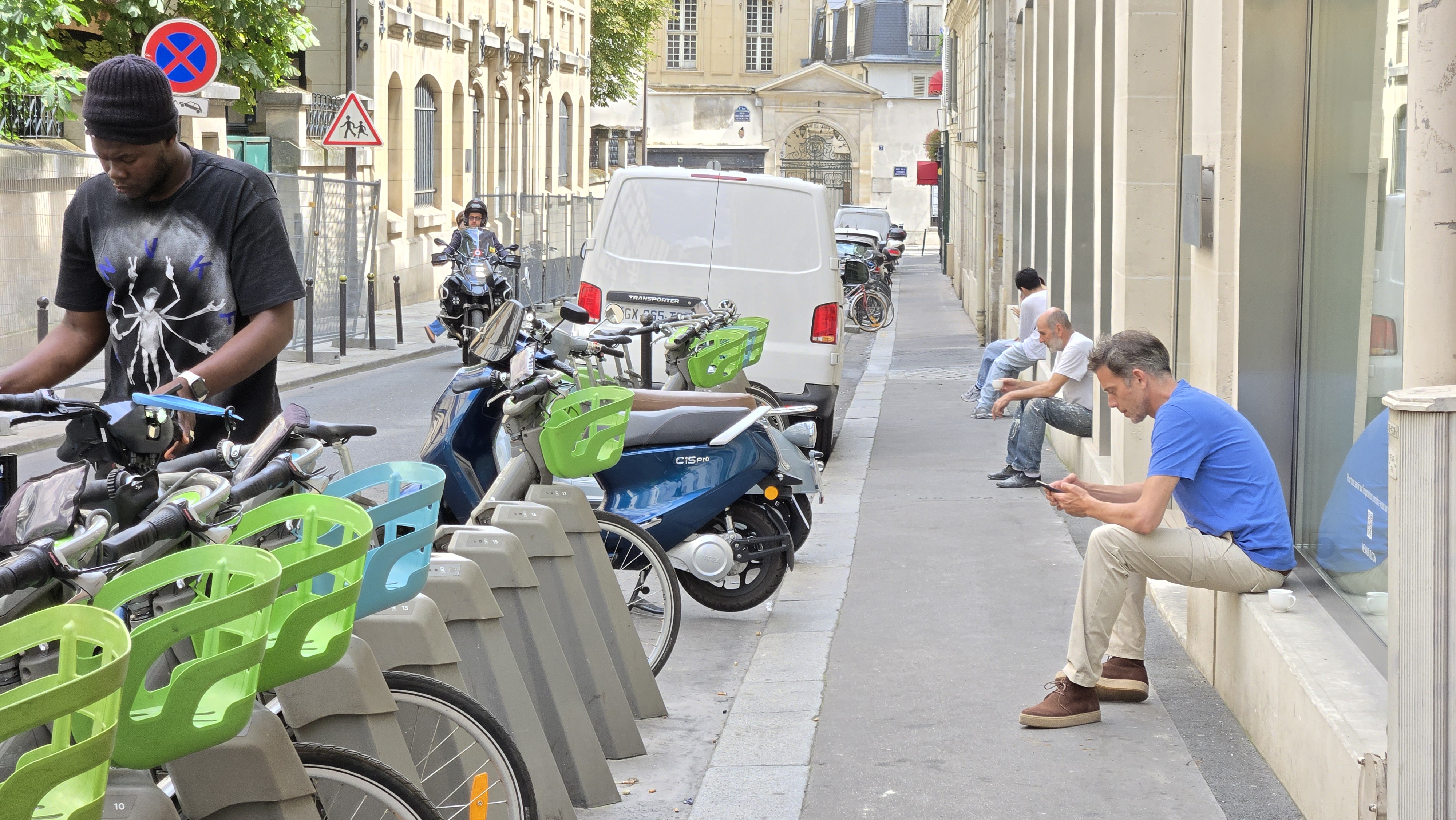




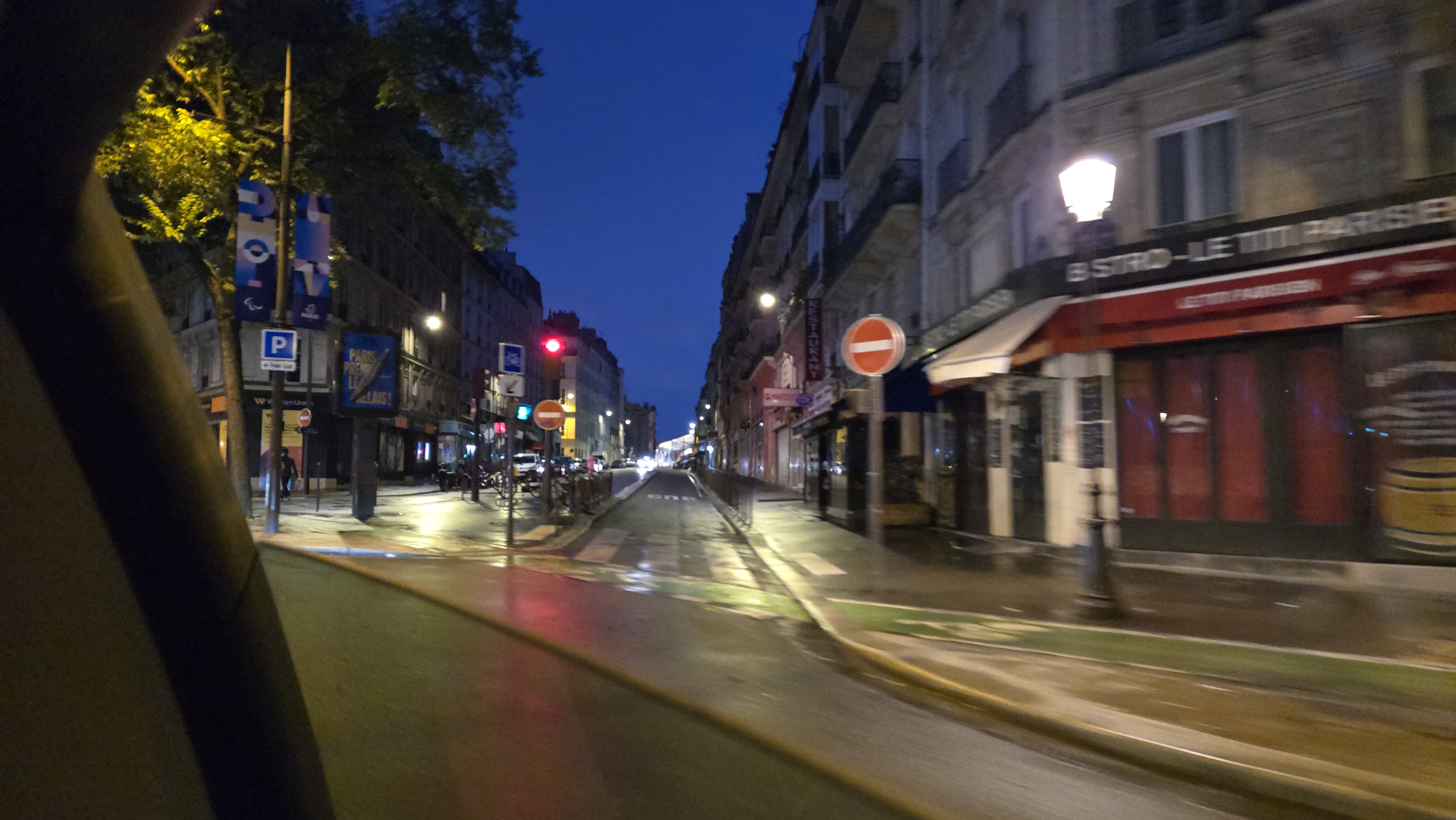
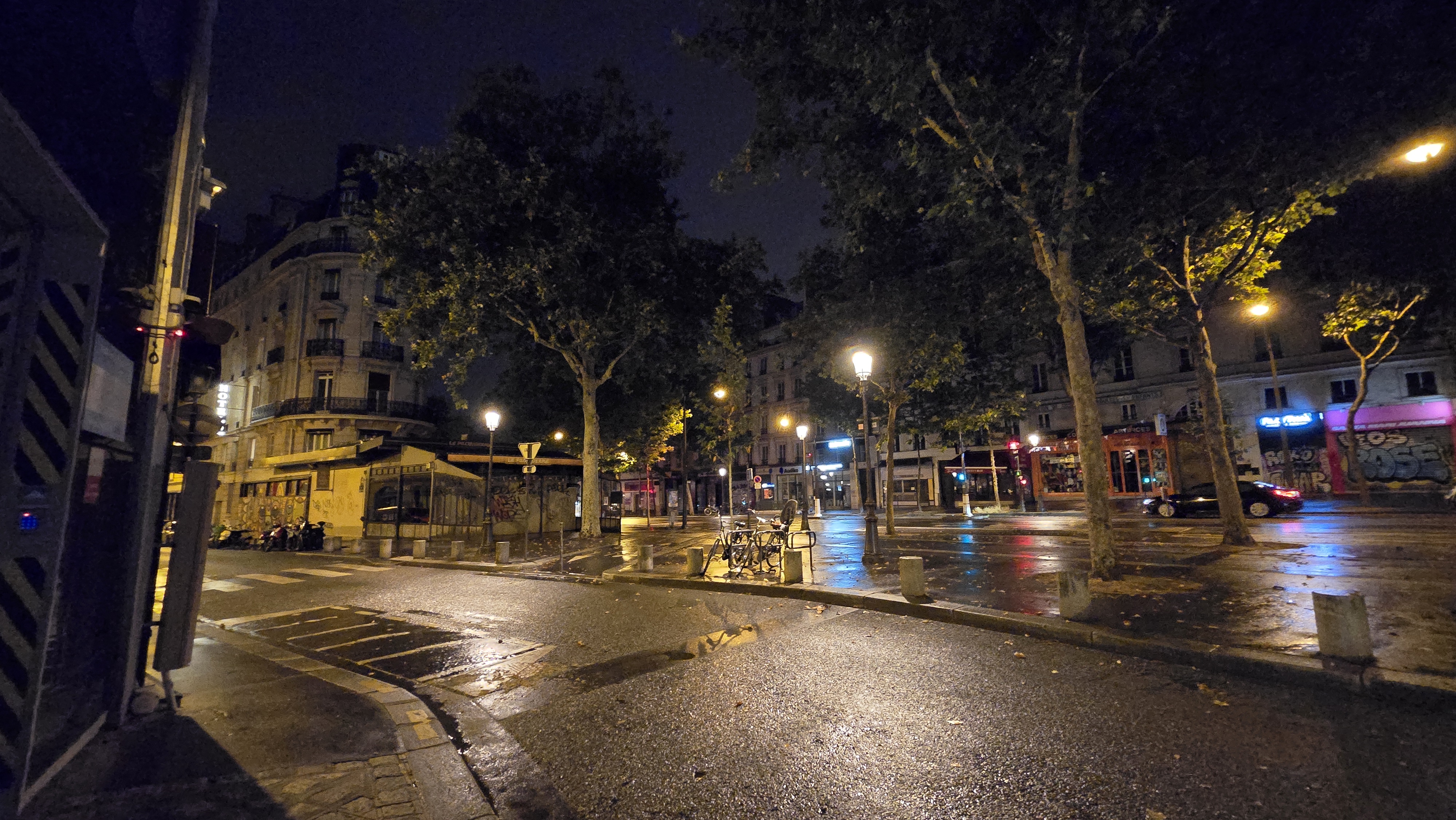
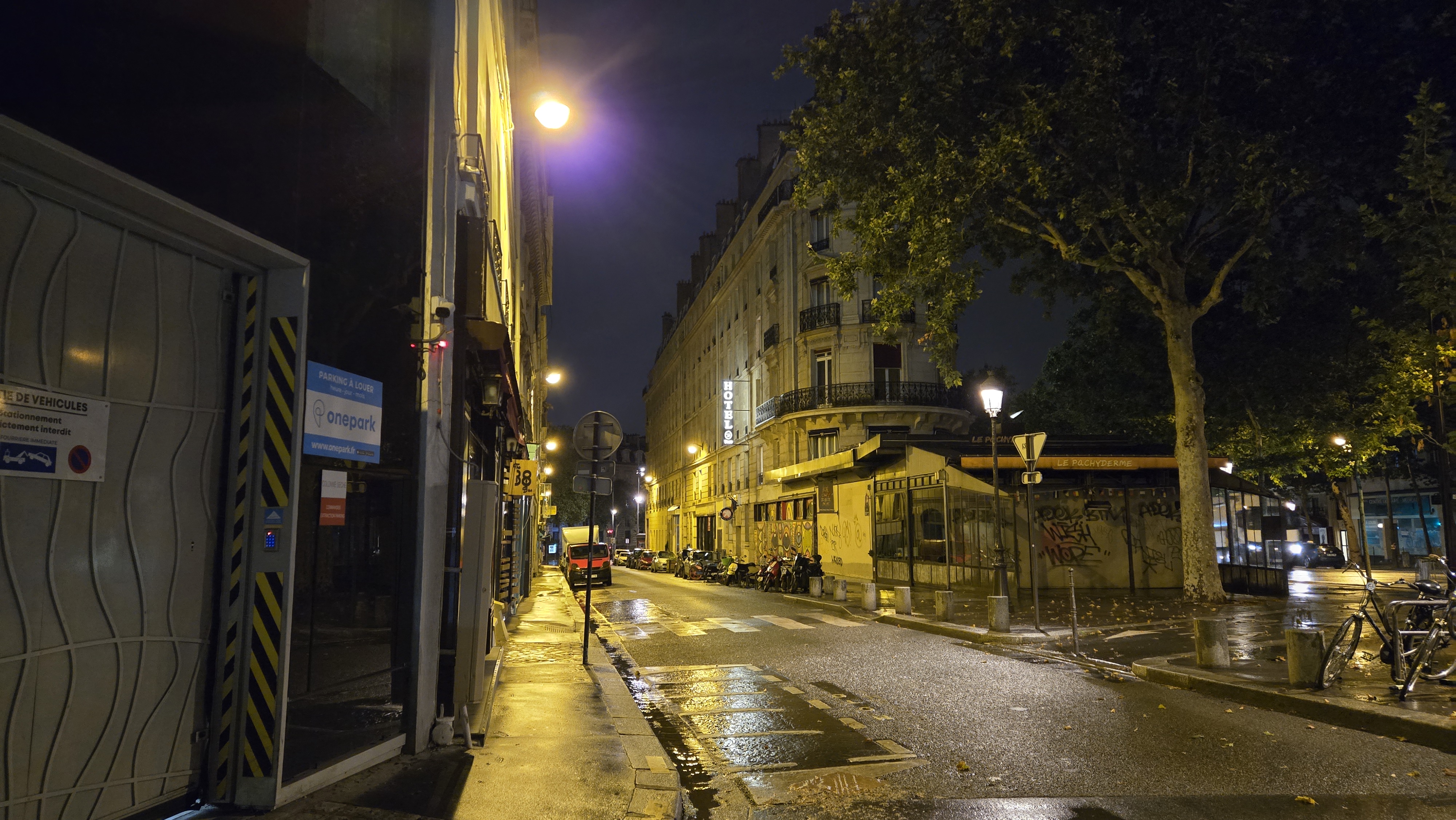
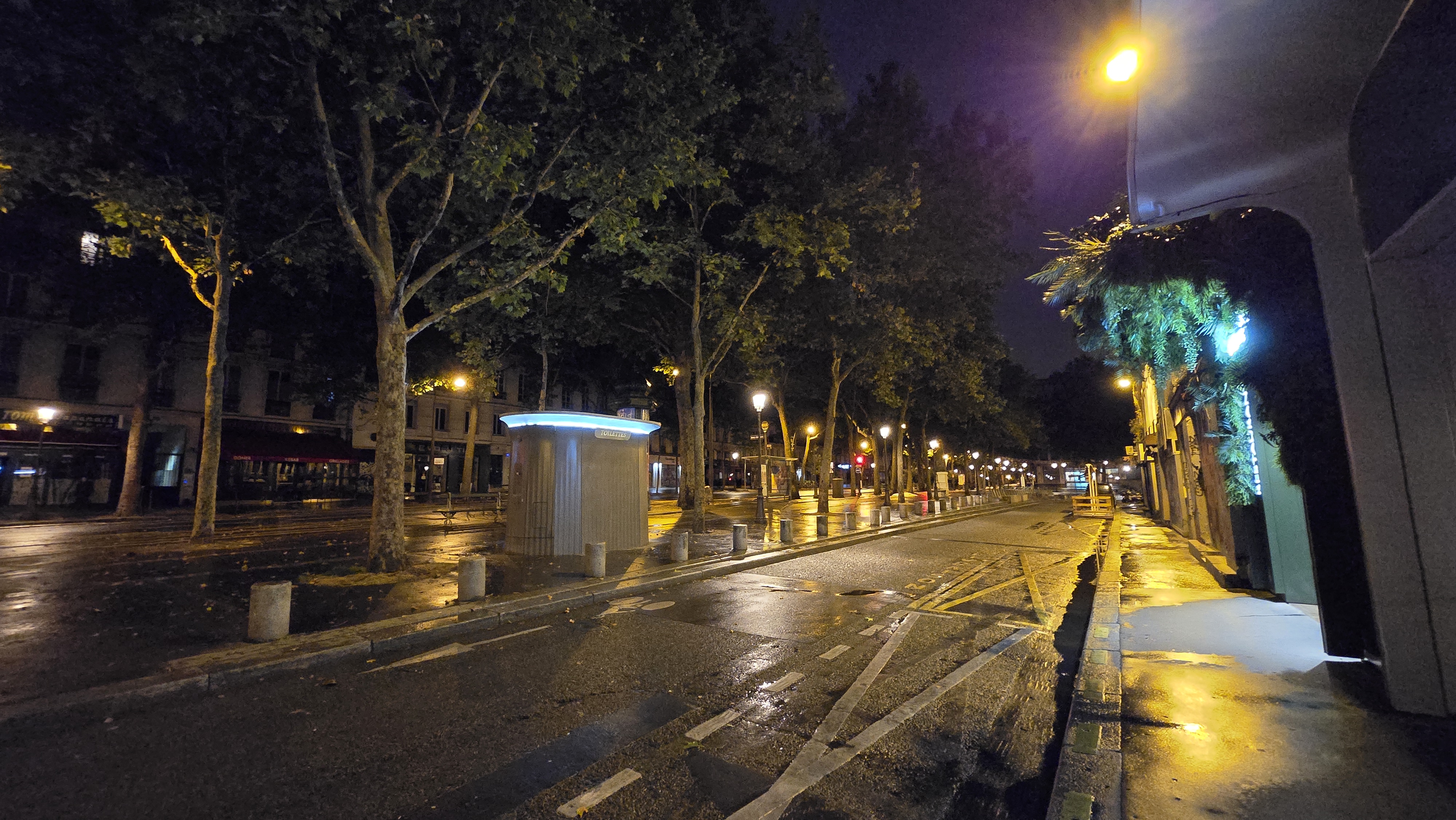
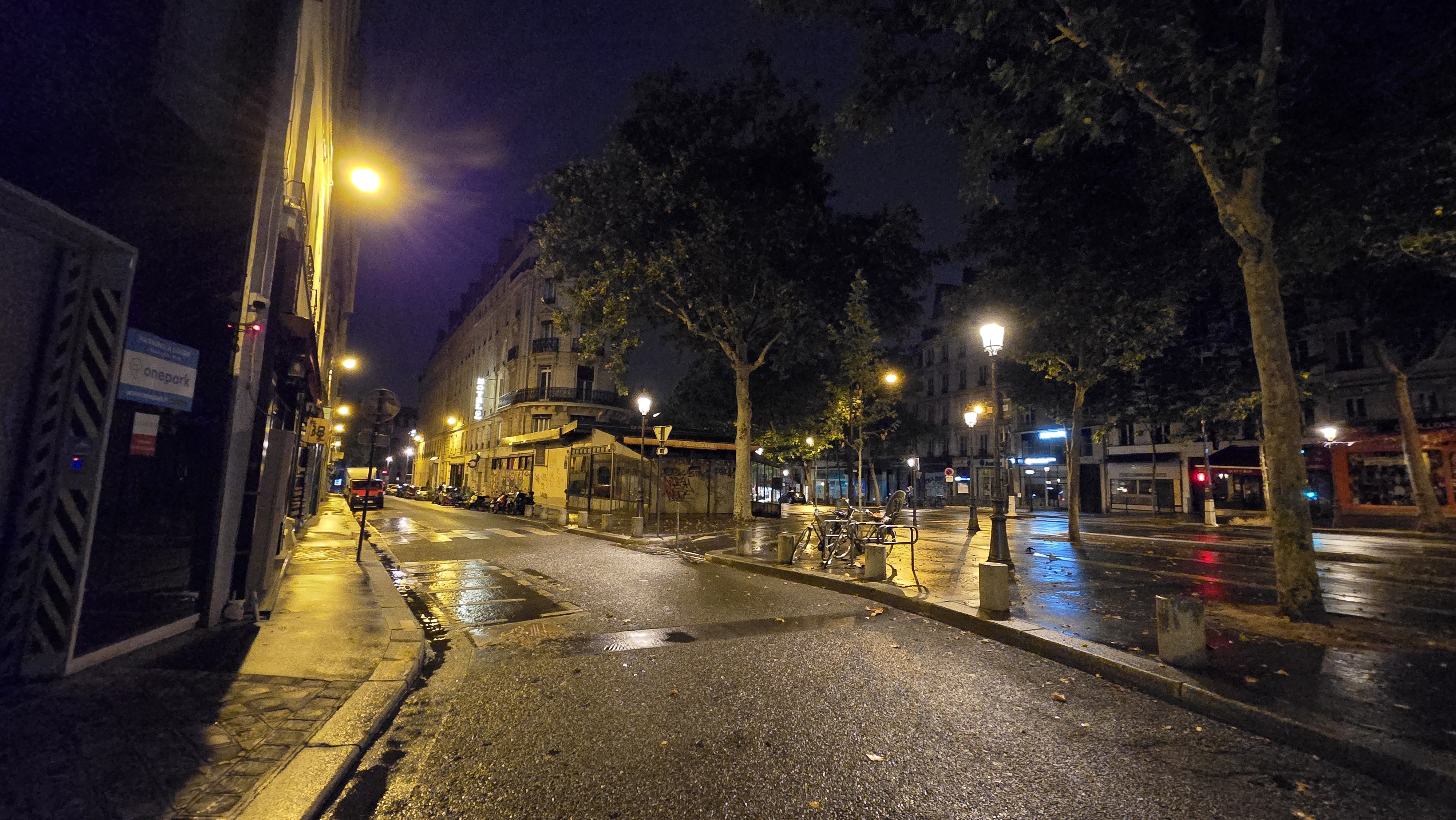
Conversely, the Galaxy S24 Ultra’s camera set-up is one of the very best you can get. It’s fronted by a massive 1/1.3" 200MP main sensor, which is accompanied by a larger 12MP ultra-wide sensor than the Fold 6’s.
With zoomed shots, the S24 Ultra gives you a 10MP 3x telephoto as well as a 50MP 5x periscope camera, and can capture hybrid zoom shots up to 100x.
Samsung Galaxy S24 Ultra camera samples:
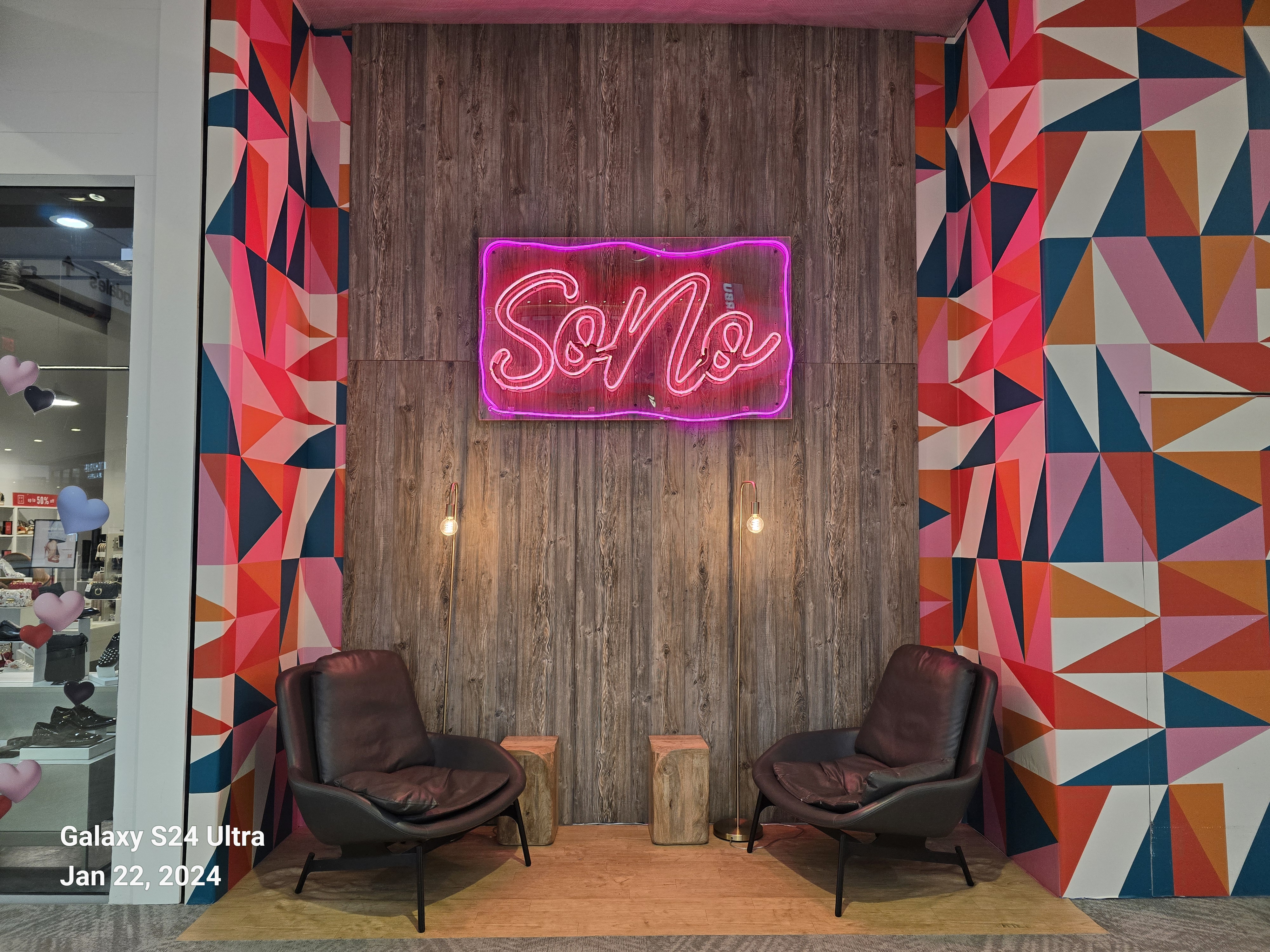


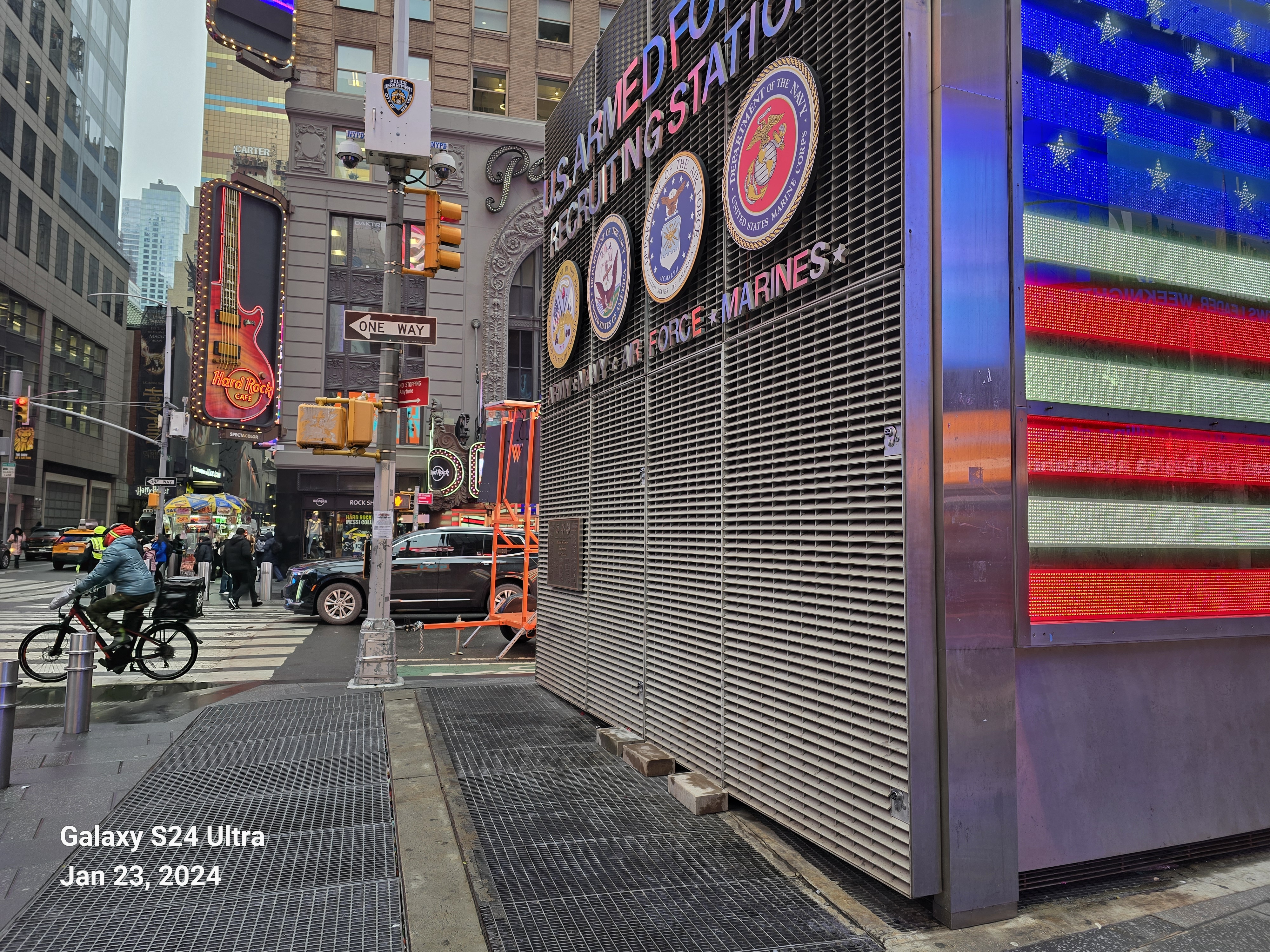


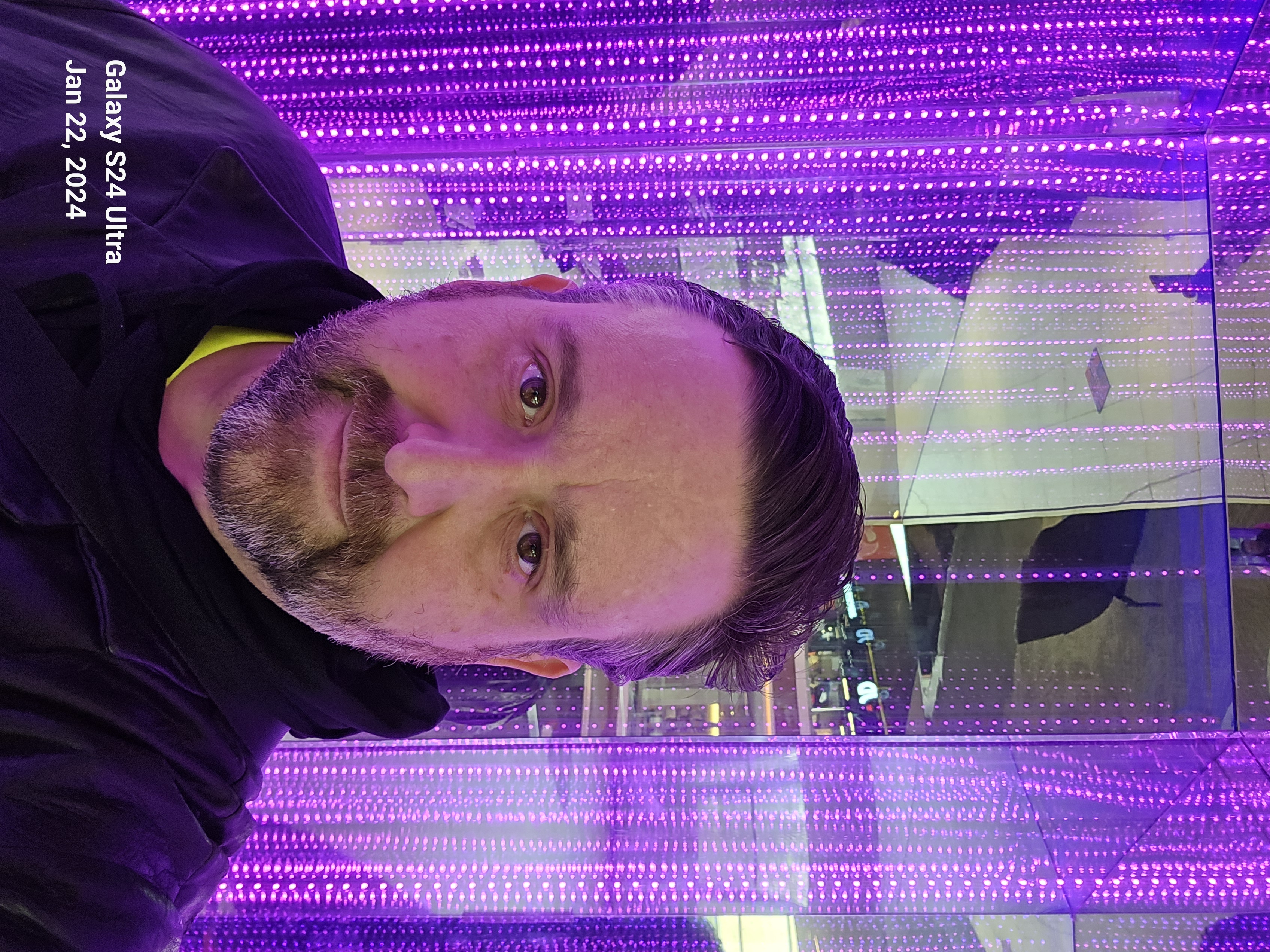
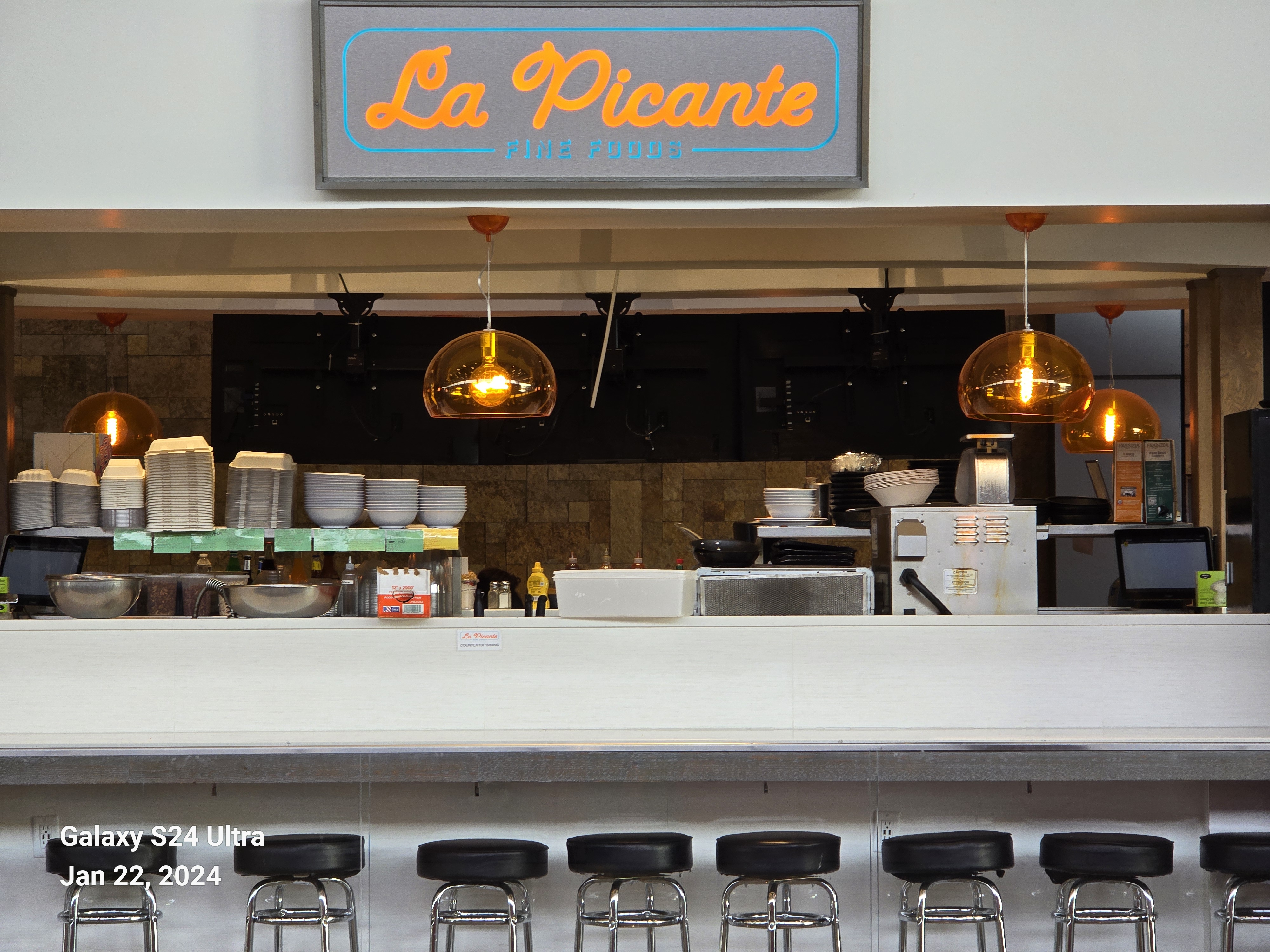
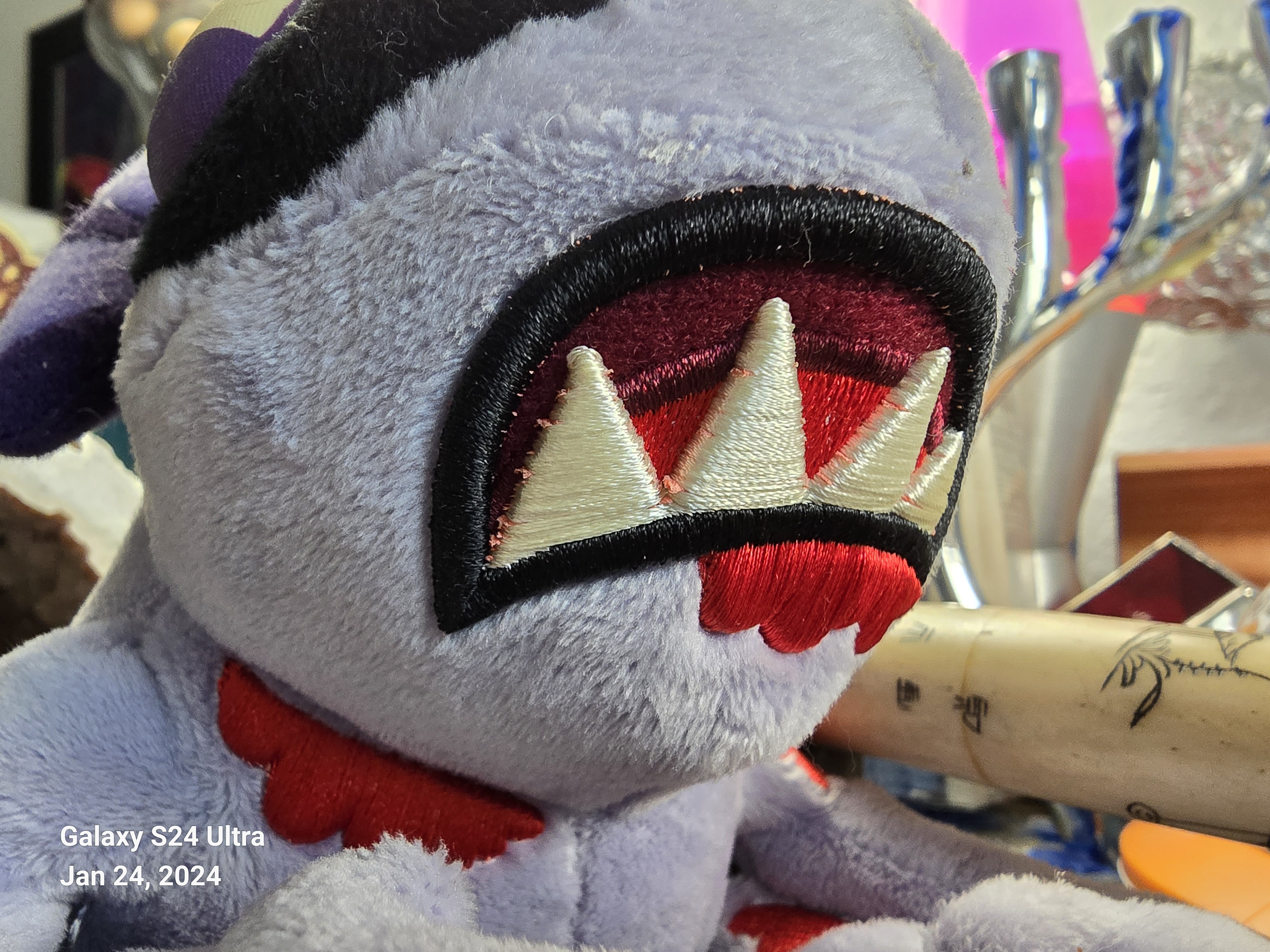

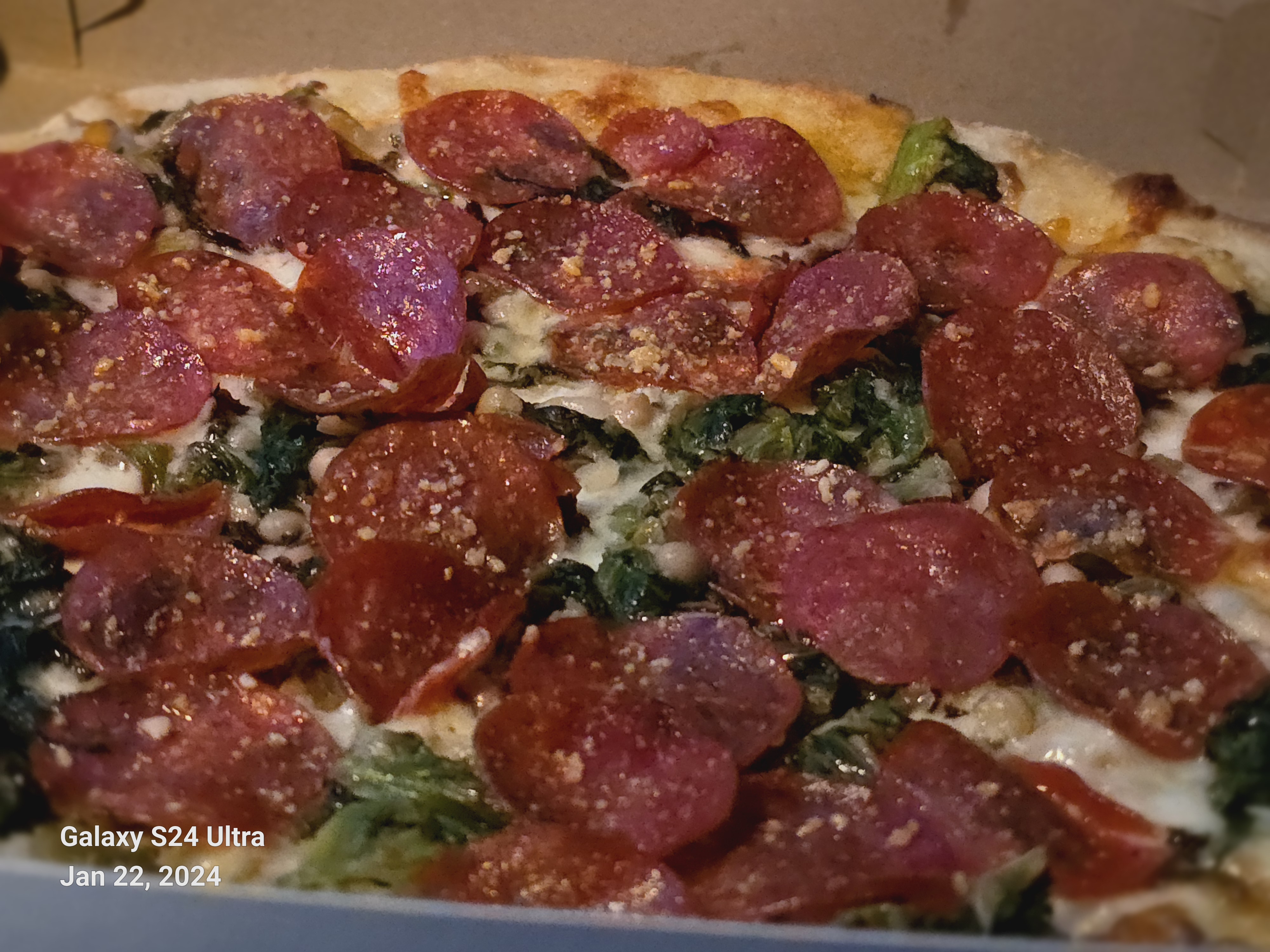

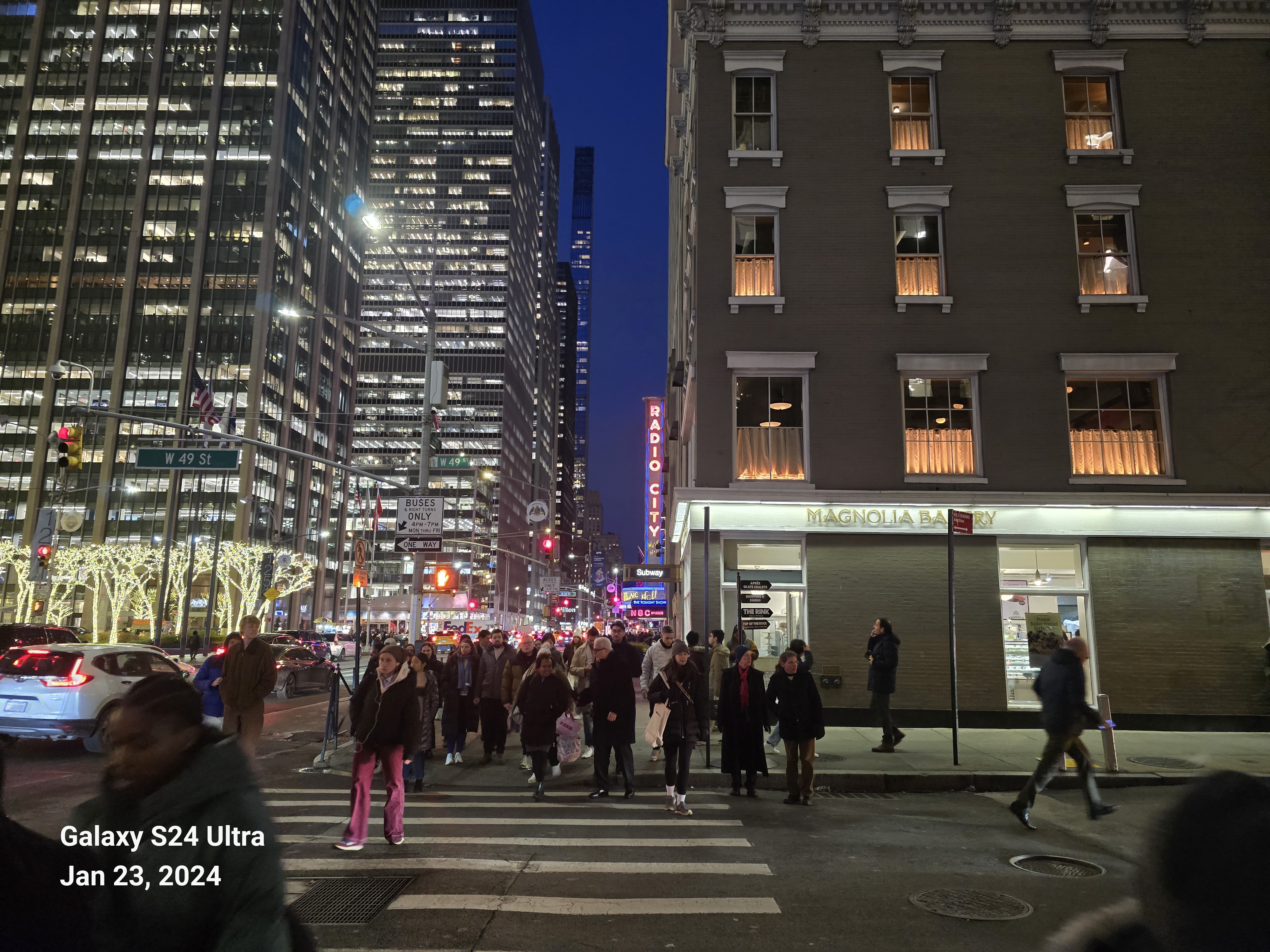
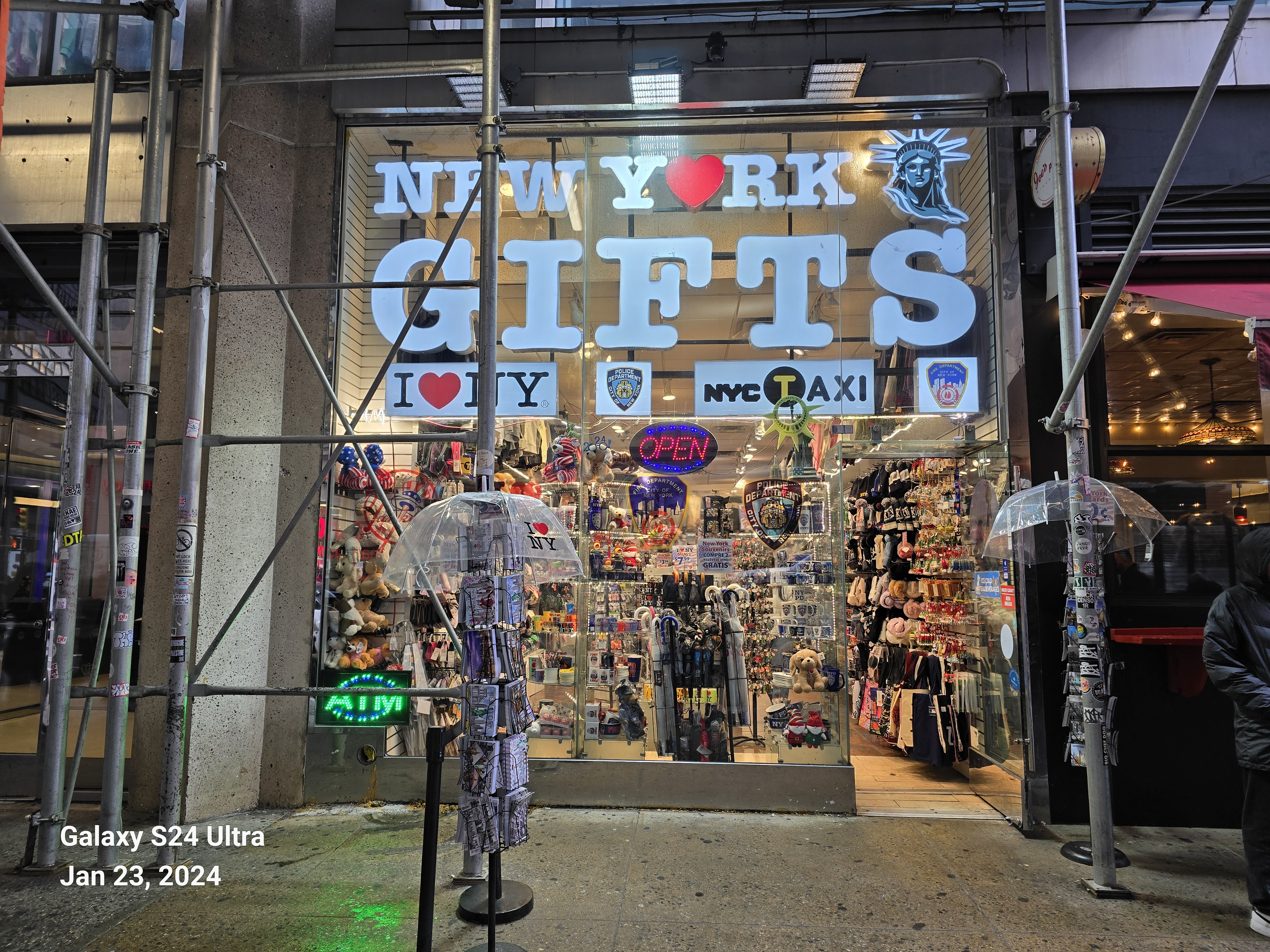

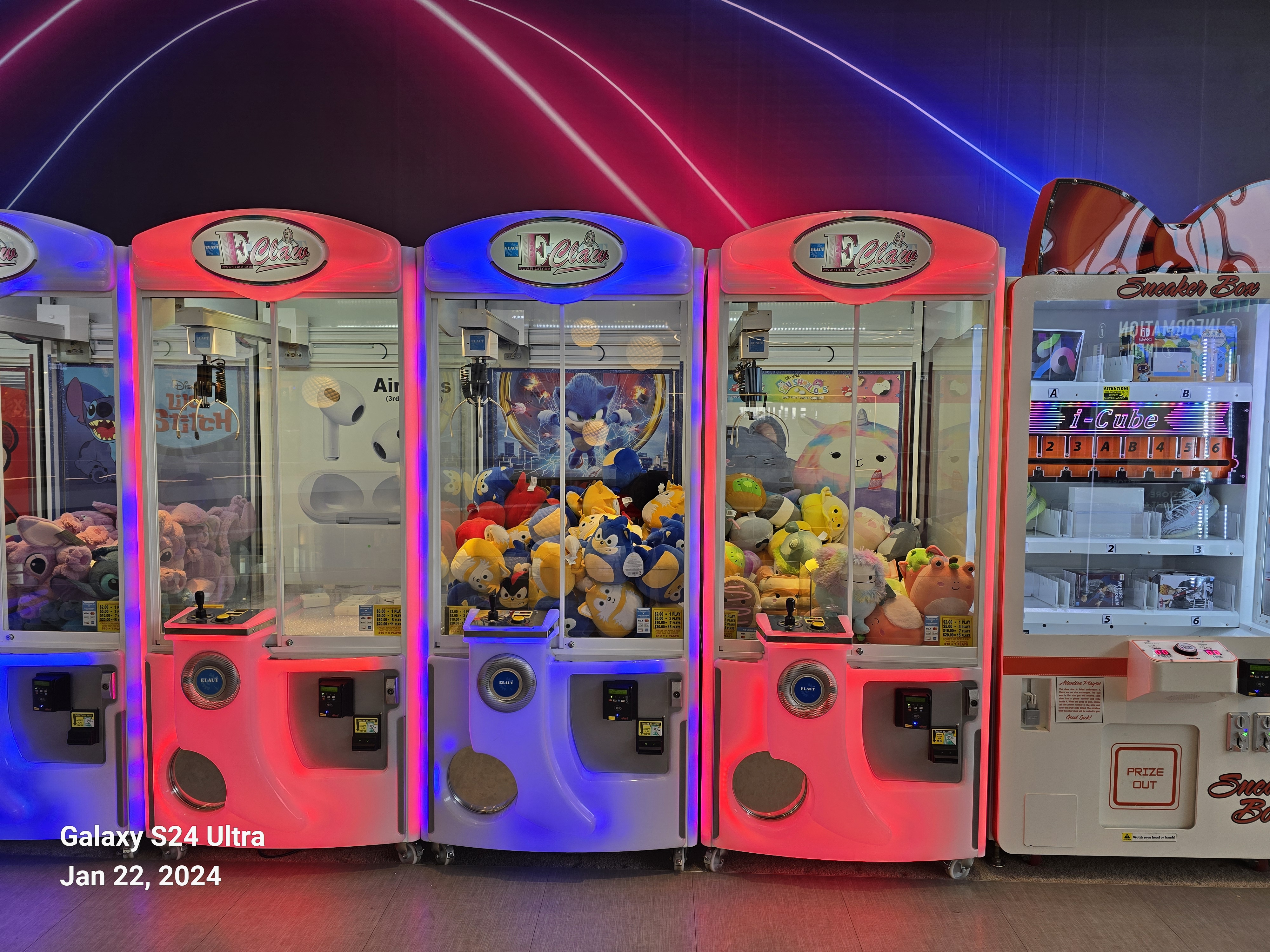

When it comes to selfie cameras, the Fold 6 gives you a 10MP Cover fixed focus camera and a 4MP in-display internal camera, though the latter is likely to be a write-off. The S24 Ultra offers a single more advanced 12MP front camera with autofocus.
Essentially, then, the S24 Ultra outguns the Fold 6 at all photographic ranges. When it comes to video, both phones can capture 8K video at 30fps, though even here the Ultra will get you better zoomed-in footage.
Samsung Galaxy Z Fold 6 vs Samsung Galaxy S24 Ultra: performance and software
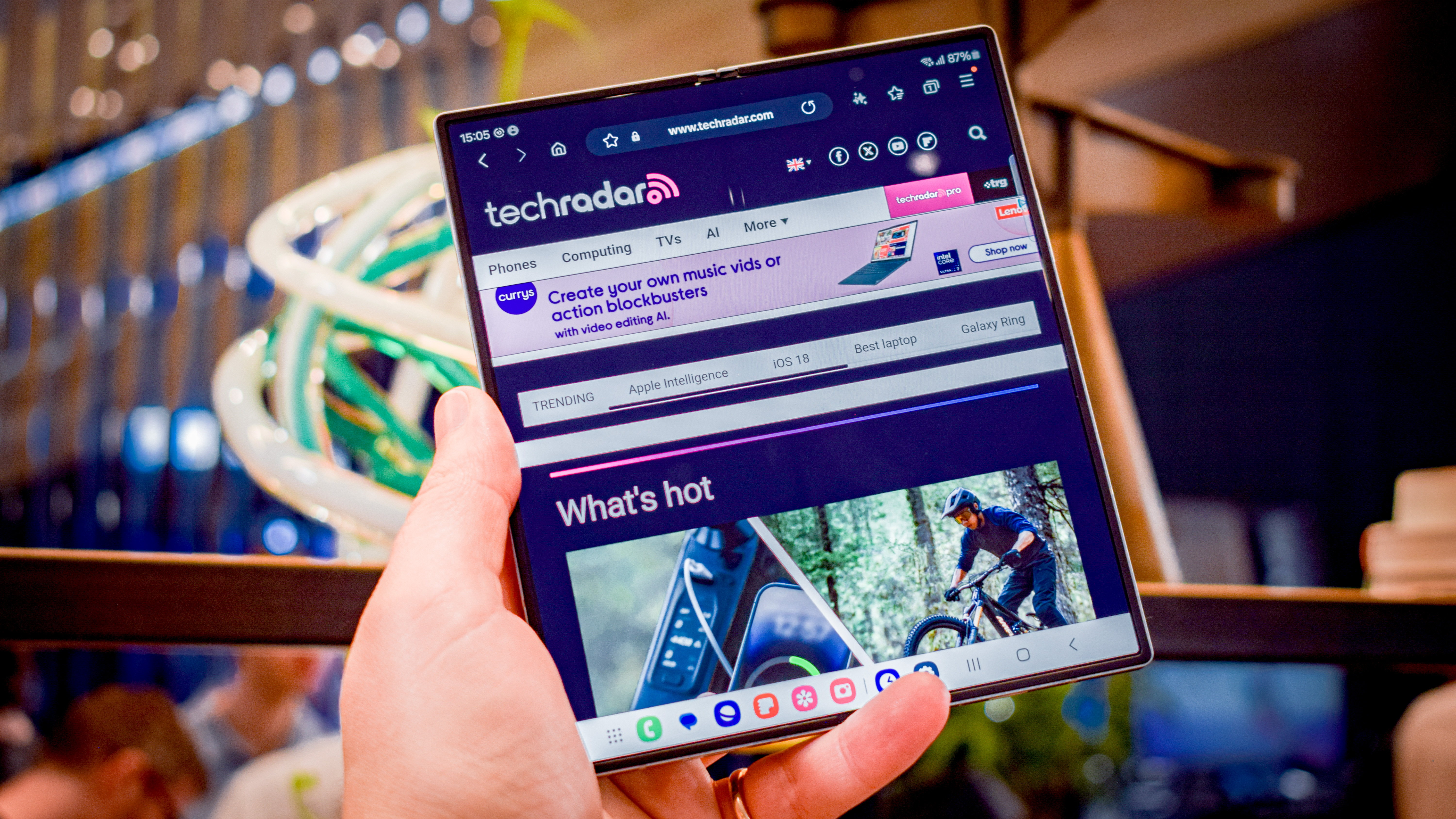
Both of these phones run on the Snapdragon 8 Gen 3 for Galaxy processor. This is an overclocked version of Qualcomm’s current flagship chip.
With the two phones sharing the same 12GB of RAM, we’d expect broadly equivalent performance; in our testing, the Fold 6 got an overall Crossmark score of 1,487, with the S24 Ultra hitting 1,322; not a vast gap but a difference all the same.
Broadly speaking, we know that the Galaxy S24 Ultra is an absolute flying machine, with a level of performance that actually pips Apple’s top iPhone for the first time in an absolute age. And the Fold 6 feels similarly fluid, and it flies through any task or high-end game with ease.
These two phones also offer the same storage options: 256GB, 512GB, or 1TB, so there’s no winner there.
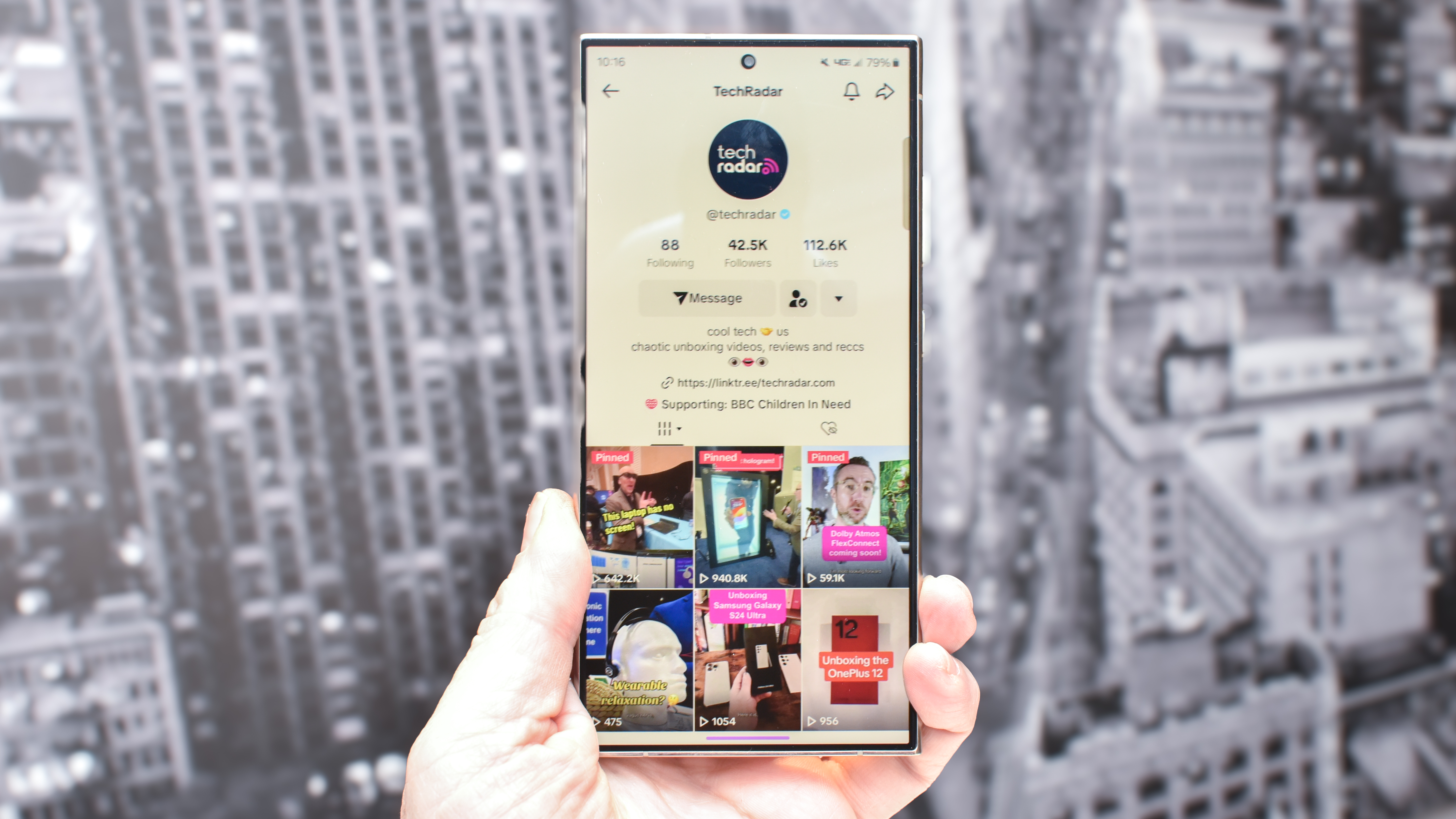
They also run the same software, as you might expect. That means Samsung’s One UI 6.1 layered on top of Android 14. The most notable aspect of this UI is Samsung’s Galaxy AI initiative, which offers things like real-time transcription, AI wallpaper generation, and a number of smart image editing tricks. You can also sketch out a rough drawing and have AI create an eerily perceptive piece of art out of it, if that’s your bag.
There are one or two neat implementations that are unique to the Fold 6, most notably the real-time translation tool: on Samsung’s foldable, each screen can show a different side to the conversation.
Both phones get seven years of software support, which is right up there with the Google Pixel 8 as the best in the business.
Samsung Galaxy Z Fold 6 vs Samsung Galaxy S24 Ultra: battery

When it comes to stamina, things are looking a little better for the Galaxy S24 Ultra. It quite simply has a bigger battery at 5,000 mAh compared to the Fold 6’s 4,400 mAh cell.
Last year’s Galaxy Z Fold 5 had perfectly adequate stamina, so we’d expect the Fold 6’s more efficient processor to eke even more life out of the same 4,400 mAh battery.
In our battery rundown lab testing, we found the Galaxy S24 Ultra lasted 16 hours and 45 minutes in its default Adaptive display mode. The Galaxy Fold 6 managed 10 hours and 15 minutes, which is a notable difference but then again it does run two display including a larger main screen.
The Galaxy S24 Ultra also features a superior charging provision, with support for 45W wired charging to the Fold 6’s 25W. Both support 15W wireless charging.
Samsung Galaxy Z Fold 6 vs Samsung Galaxy S24 Ultra: verdict
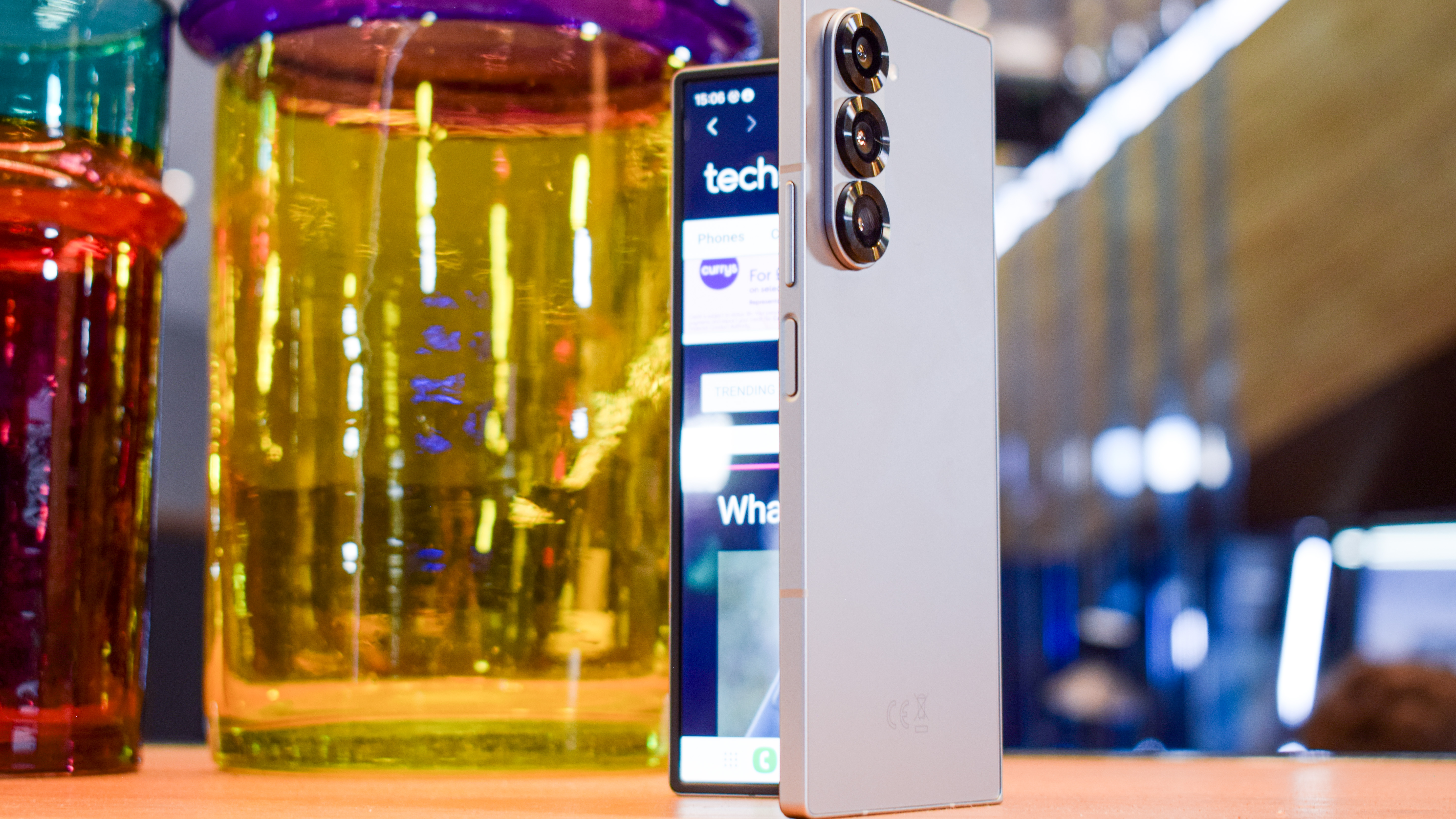
As you'll see in our Galaxy Z Fold 6 review, Samsung has crafted another compelling foldable phone, but it would be a huge achievement for it to supplant the Galaxy S24 Ultra as the best Samsung phone on the market, one the best Android phones, and a pick on our overall best phones list.
Of course, the two phones are different devices in terms of their core appeal. The Galaxy Z Fold 6 offers a premium foldable phone for people who want a device that can double as a compact tablet. Whereas the Galaxy S24 Ultra is a standard smartphone at its most maximalist.
Ultimately, we'd say the Galaxy S24 Ultra has the edge with its better suite of cameras, superior battery life and built-in S Pen. But the Fold 6 has given it a run for its money, and makes an ever-more compelling argument to consider some of the best foldable phones.







